Image source: Canva.com
Installing solar panels can help families in the U.S. save money on utility bills, but the upfront cost can be a challenge for many Americans. While there are options like solar loans available, incentives and programs vary by state, aiming to make renewable energy more accessible to households and communities without burdening homeowners financially.
If you’re interested, here’s a comprehensive guide to solar incentives and programs in the United States, complete with eligibility criteria and application procedures.
Are These Programs Offering Free Solar Panels?
The programs mentioned usually do not offer completely free solar panels. Nevertheless, their main goal is to cut down or remove initial expenses while allowing homeowners to save money. Rebates and grants often help cover a large part of the costs, but homeowners might still have to pay some amount or make continuous payments.
For instance, Hawaii‘s on-bill repayment initiative provides low-interest loans that are paid back through regular electric bills. This setup allows homeowners to buy solar systems and save money at the same time.
Most programs target families with incomes at or below 80% of the federally-defined threshold of “low-income,” equivalent to the area median income (AMI). These individuals often bear significant energy costs, making them prime candidates for low-cost solar programs.
Present Solar Initiatives for Single-Family Homes
Disclaimer: The information provided in this article is accurate as of the date of publication. SolarWiki serves as an informative resource and does not claim to be an expert in the financial sphere. For detailed and personalized information, please contact official government sources or consult with professional solar installers.
Alabama
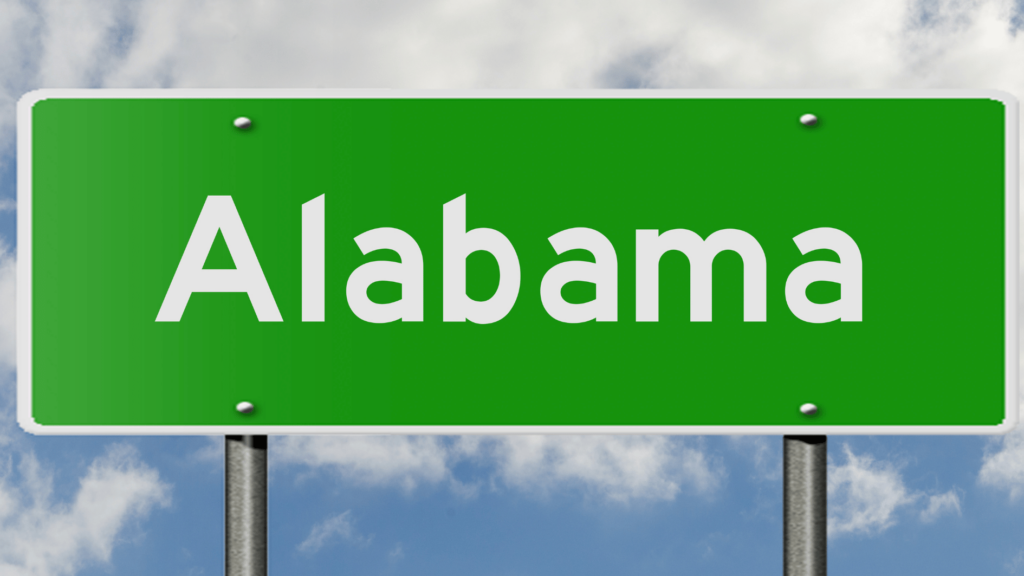
Alabama’s Solar Property Tax Exemption
Alabama tax code (Section 40-9B-1) offers a property tax abatement for owners of qualifying renewable energy facilities. This abatement can exempt the property tax on the increased value added to a home by a solar installation for a duration of either 10 or 20 years, depending on the jurisdiction where the request is made.
Solar for All
The Southeast Rural Power: SFA Coalition, led by Groundswell, will implement the SE Rural Power SFA Program to provide community solar and energy storage solutions for low-income and disadvantaged households. This initiative will deliver solar savings, energy efficiency improvements, and greenhouse gas emissions reduction. The coalition includes nonprofit electric cooperatives and municipal utilities serving impoverished and energy-burdened communities in the Southeast.
The Clean Energy Fund of Texas (TxCEF), in collaboration with the Bullard Center for Environmental and Climate Justice at Texas Southern University (BCECJ), will facilitate residential-serving community solar projects in low-income and disadvantaged communities. These projects aim to reduce emissions, lower utility bills, generate shared revenues through community ownership, and mobilize private capital. By deploying solar and energy storage, these projects will enhance grid and community resilience.
SELF Solar System Loans
SELF (Solar Energy Loan Fund) offers unsecured personal loans for home improvement projects, including energy efficiency and renewable energy upgrades. Key features include:
- Loan Amounts: $3,000 to $25,000
- Interest Rates: 5% to 9.99% fixed
- Terms: 3 to 10 years
- Fees: Origination fee of 2.5%, with a 1.25% discount for military, plus a project management fee of 2.75-2.99%
- Eligibility: Open to homeowners in Florida, Alabama, Georgia, South Carolina, and Tennessee
Alaska

Net Metering
Alaska’s net metering regulations, established by the Regulatory Commission of Alaska in 2010, pertain to renewable energy systems of 25 kW or less. These regulations mandate large utilities to procure up to 1.5 percent of the utility’s average load from customers who install projects. (The Homer Electric Association recently opted to raise this cap to 3 percent).
Customers receive compensation equivalent to what the utility saves on fuel and operations costs for generating electricity.
The quantity of customer-installed projects, notably solar photovoltaic systems, is beginning to rise rapidly, with at least one utility anticipated to reach the 1.5 percent cap set by the Regulatory Commission of Alaska (RCA) around 2022.
Solar for All
- The Community Power Coalition (CPC), led by Inclusive Prosperity Capital, Inc., will enhance the US Department of Energy’s National Community Solar Partnership and Community Power Accelerator program through its SFA initiative, “Powering America Together.” The program aims to develop low-income community solar projects, reduce carbon emissions, lower energy costs, and promote quality jobs, community wealth-building, energy resilience, and equitable workforce development.
- The Alaska Energy Authority, in partnership with the Alaska Housing Finance Corporation (AHFC), will deploy solar photovoltaic infrastructure across the state. This initiative includes urban residential installations and community-scale projects in rural areas. The program aims to reduce greenhouse gas emissions statewide while providing low-income and disadvantaged communities with access to renewable energy sources.
- The Alaska Tribal SFA is a collaborative effort between Tanana Chiefs Conference (TCC), the Alaska Native Tribal Health Consortium (ANTHC), and Alaska Housing Finance Corporation (AHFC) to provide comprehensive solar access to Tribal residents across Alaska. The program ensures that all Tribal members, whether they own homes capable of supporting distributed generation or live in communities reliant on small isolated microgrids, can benefit from solar energy.
Arizona

Arizona State Residential Solar Income Tax Credit (Credit for Solar Energy Devices)
Homeowners who installed a solar energy device in 2021 should submit Form 310 with their individual income tax return and Form 301.
A solar energy device collects and transfers solar energy for heating, cooling, electricity, mechanical power, or solar daylighting, including wind generators.
Arizona offers a 25% credit on the cost of a solar device, up to $1,000. The total credit for the same residence cannot exceed $1,000.
The Renewable Energy Production tax credit is for generators with at least 5 megawatts capacity and is not for residential use. No preapproval is required for the residential Solar Energy Device tax credit claimed on Form 310.
Solar and Wind Equipment Sales Tax Exemption
Arizona exempts sales tax for retail and contractor installation of solar energy devices, including wind generators and pumps. The exemption covers various solar technologies but excludes components like batteries and controls not integral to the system. H.B. 2429 in June 2006 removed the $5,000 device limit. S.B. 1229 in 2012 extended the exemption to net metering transactions and sale of renewable energy credits (RECs). Solar energy retailers must register with Arizona Department of Revenue using Form 6015 to access these exemptions, with no expiration date for retailers.
SunWatts Renewable Energy and Rebate Program
Mohave Electric Cooperative (MEC) offers rebates of 5 cents per watt, up to $2,500, for residential and small commercial members who install photovoltaic (solar), wind, or solar water heating systems. To receive the SunWatts rebate, members must submit their reservation and application before work begins, and can schedule an appointment with MEC’s Energy Management Specialist for assistance with the process. The rebates are funded by a surcharge on member bills mandated by the Arizona Corporation Commission.
Solar for All
- The Community Power Coalition (CPC) will enhance the US Department of Energy’s National Community Solar Partnership and Community Power Accelerator program through its SFA initiative, “Powering America Together.” Led by Inclusive Prosperity Capital, Inc., CPC includes experienced community solar experts who have contributed to the Community Power Accelerator. This program aims to develop low-income community solar projects, reduce carbon emissions, lower energy costs, and promote quality jobs, community wealth-building, energy resilience, and equitable workforce development.
- SFA Arizonans aims to extend the benefits of Arizona’s abundant solar resources to low-income and disadvantaged communities. This initiative will implement innovative market mechanisms to expedite solar deployment in underserved areas through rooftop installations, neighborhood projects, and solar-plus-storage systems. These efforts will promote equitable solar development across urban, rural, and Tribal areas, providing immediate savings on electricity bills and substantial reductions in greenhouse gas emissions.
- Hopi Utilities Corporation, in partnership with Arizona State University and the Hopi Renewable Energy Office, will implement residential solar and storage systems on the Hopi Reservation. This initiative targets the Hopi Tribe, which faces chronic underservice, high poverty rates, and severe energy disparities. With 35% of Hopi households lacking electricity and frequent outages for those connected, the program will benefit low-income and unelectrified households by leveraging financing and tax incentives without upfront costs to residents.
- GRID Alternatives‘ WIN-SFA program leverages extensive experience in Tribal communities to maximize benefits for Tribal households, advance energy sovereignty, and address environmental degradation and climate change. By providing grants, incentives, and technical support from experienced organizations, WIN-SFA will bring solar power to thousands of Native American households nationwide, promoting equitable renewable energy deployment.
- Led by GRID Alternatives, a coalition of ten nonprofit solar and affordable housing providers has developed SANAH to maximize benefits for households and communities. SANAH aims to expand solar and storage access for income-qualified households, deliver significant energy savings, reduce pollution, and combat climate change. The program also offers efficiency improvements, electrification benefits, and supports equity, workforce development, and community resilience.
Arkansas

Net Metering
Arkansas is shifting from net metering to net billing this year, significantly reducing the value of earned credits. However, you still have time until September 30, 2024, to install solar panels and secure net metering for the next 20 years.
Solar for All
- Led by Groundswell, the Southeast Rural Power: SFA Coalition will implement the Southeast Rural Power SFA Program to provide residential-serving community solar and energy storage solutions, enhancing community resilience, delivering direct solar savings, improving energy efficiency, and reducing greenhouse gas emissions for low-income and disadvantaged households. This coalition includes nonprofit electric cooperatives and municipal utilities serving some of the most impoverished and energy-burdened communities in the Southeast.
- Hope Enterprise Corporation (HEC) aims to expand affordable and resilient solar energy access for low-income and disadvantaged households in Arkansas. The “Residential Rooftop Solar for Low-Income Households” strategy seeks to develop a residential rooftop solar leasing market in areas served by the state’s investor-owned utilities, ensuring savings for low-income households and bolstering the local solar installer ecosystem. The “Multifamily Behind-the-Meter Solar for Low-Income Tenants” strategy targets multifamily buildings to reduce energy costs for low-income tenants through innovative financial mechanisms and partnerships with local housing developers. Both strategies leverage HEC’s experience in serving disadvantaged communities.
- In collaboration with the Bullard Center for Environmental and Climate Justice at Texas Southern University (BCECJ), the Clean Energy Fund of Texas (TxCEF) aims to deploy technical assistance, private capital, and grants to minority-serving institutions. These organizations will facilitate residential-serving community solar projects in low-income and disadvantaged communities facing energy policy and grid vulnerability challenges. The projects will reduce emissions, lower utility bills, generate shared revenues through community ownership, and mobilize private capital.
California

DAC-SASH
The California Public Utilities Commission (CPUC) has approved the DAC-SASH program to increase the adoption of clean, affordable solar by residential customers living in disadvantaged communities. The DAC-SASH program runs through 2030, and is modeled after California’s long-standing and successful Single-family Affordable Solar Homes (SASH) program.
California’s Low-Income Weatherization Program (LIWP)
LIWP provides free solar photovoltaic (PV) systems and energy efficiency upgrades to low-income households. It reduces greenhouse gas emissions and energy costs by generating clean, renewable power. LIWP also improves living conditions, economic security, and community health by lowering utility bills and enhancing air quality. This program ensures low-income residents benefit from the State’s Climate Investments, making homes more affordable and comfortable.
Net Metering
Net Energy Metering allows solar energy system owners to receive bill credits for the excess electricity they generate and send back to the grid. NEM 2.0 is the current version, but NEM 3.0 is expected to introduce new changes in how credits are calculated and applied.
NEM 3.0 will increase grid reliability and provide more solar opportunities for low-income homes through new incentives and bill credits.
The NEM 3.0 structure includes net billing, which results in a 75% lower credit value for excess energy sent to the grid. The rates are based on avoided cost, which is how much money the utility saves by not producing the energy itself.
Two utility companies in California (Pacific Gas & Electric and Southern California Edison) offer customers higher-valued credits for nine years if they apply for interconnection before the end of 2027. If you are unable to lock in NEM 2.0 rates and live in these utilities’ service areas, then you still have an opportunity for slightly better rates than those who wait until after 2027.
Solar for All
- The Community Power Coalition’s “Powering America Together” SFA program, led by Inclusive Prosperity Capital, Inc., will collaborate with the US Department of Energy’s National Community Solar Partnership and Community Power Accelerator program. Comprising seasoned community solar experts, CPC aims to support low-income community solar projects, reduce carbon emissions, lower energy costs, and promote quality jobs, community wealth-building, energy resilience, and equitable workforce development.
- California’s CA-S4A program is a coalition of state entities with expertise in regulatory design, capacity building, project finance, infrastructure development, and grid management. This coalition will leverage California’s extensive solar energy market transformation over the past two decades to provide affordable, reliable clean energy statewide. The program aims to enhance programmatic capacity, extend current initiatives, address funding gaps, and support new strategies for future market conditions, all while continuing California’s decarbonization efforts.
- Teaming up with GRID Alternatives, a coalition of ten mission-driven nonprofit solar and affordable housing providers has developed the Solar Access for Nationwide Affordable Housing Program (SANAH). SANAH aims to maximize benefits for households and communities by advancing equity, reducing pollution, and combating climate change. The program offers expanded access to solar and storage for income-qualified households, significant energy savings, and relief from high costs, along with benefits like efficiency improvements and electrification.
Colorado

Solar Sales Tax Exemption
Colorado exempts from the state’s sales and use tax all sales, storage, and use of components used in the production of alternating current electricity from a renewable energy source.
Solar Property Tax Exemption
Renewable energy personal property that is located on a residential classified property, owned by the residential property owner, and produces energy that is used by the residential property is exempt from Colorado property taxation.
The Colorado’s Weatherization Assistance Program (WAP)
Supported by the Colorado Energy Office (CEO), this initiative subsidizes solar panel installation for low-income single-family homes through the federal Weatherization Assistance Program (WAP). Eligibility requires homeownership, residency, and a household income not exceeding 200% of the federal poverty level. Additionally, the CEO assesses the net benefit of solar installation relative to cost. For more details, contact the Colorado Energy Office or a local weatherization agency to apply.
Solar for All
- The Community Power Coalition (CPC)’s SFA program, “Powering America Together,” will collaborate with and enhance the impact of the US Department of Energy’s National Community Solar Partnership and Community Power Accelerator program. Led by Inclusive Prosperity Capital, Inc., CPC comprises seasoned community solar experts who have contributed to the Community Power Accelerator as developers, lenders, trainers, and technical assistance providers. The program aims to support the development of low-income community solar projects, reduce carbon emissions, lower energy costs, and promote quality jobs, community wealth-building, energy resilience, and equitable workforce development.
- The Colorado Solar for All (COS4A) program is set to offer single-family rooftop solar and multifamily rooftop solar installations across the entire state. Representing a diverse range of stakeholders, with the Colorado Energy Office (CEO) taking the lead, the COS4A program is poised to extend the benefits of solar energy to low-income and disadvantaged communities. Supported by the EPA’s Solar for All (SFA) grant, this initiative will complement Colorado’s thriving solar market by expanding access to distributed solar investments and making affordable, resilient, and clean solar energy accessible to a broader range of communities.
- Grid Alternatives’ Western Indigenous Network Solar For All (WIN-SFA) program draws on its extensive experience in working with Tribal communities, aiming to maximize benefits for Tribal households and advance energy sovereignty while addressing environmental degradation and climate change. Through the provision of financial assistance in the form of grants and incentives, coupled with technical support from organizations with expertise in equitable deployment of renewable energy in Tribal settings, WIN-SFA seeks to bring solar power to thousands of Native American households nationwide.
- Teaming up with lead applicant GRID Alternatives, a coalition of ten mission-driven nonprofit solar and affordable housing providers and allies has collaborated to develop the Solar Access for Nationwide Affordable Housing Program (SANAH). SANAH is meticulously crafted to maximize benefits for households and communities while advancing equity, reducing harmful pollution, and combating climate change. The program offers a multitude of advantages, including expanded access to solar and storage for income-qualified households, significant energy savings and relief from burdensome costs, as well as additional benefits like efficiency improvements and electrification.
Connecticut

Sales Tax Exemption
Since 2010, Connecticut has implemented a sales tax exemption on all renewable energy equipment, encompassing solar, geothermal, and wind power systems. This exemption relieves purchasers from paying the standard 6.35% sales tax on these sustainable energy investments.
Property Tax Exemption
In addition to waiving sales tax on solar, Connecticut also allows municipalities to exempt homeowners from property tax increases that would result from a rise in home value due to installing solar. An exemption claim must be filed with the assessor or board of assessors in the town in which the property is placed on or before the first day of November in the applicable assessment year. Applications are not required each year as long as no major alterations are made to the renewable energy system.
Solar for All
- Project SunBridge aims to extend residential solar access to low-income and disadvantaged households statewide in Connecticut, with a primary focus on affordable housing units. This initiative seeks to enhance resilience, grid benefits, and economic opportunities by potentially reaching thousands of additional households through existing solar and storage programs, reducing CO2 emissions, and cutting energy costs. Residents will benefit from financial assistance, including increased incentives, accessible loans, and low-cost capital for solar and storage, alongside technical support for clean energy workforce development and community engagement.
- The Community Power Coalition (CPC)’s SFA program, “Powering America Together,” will collaborate with and enhance the impact of the US Department of Energy’s National Community Solar Partnership and Community Power Accelerator program. Led by Inclusive Prosperity Capital, Inc., CPC comprises seasoned community solar experts who have contributed to the Community Power Accelerator as developers, lenders, trainers, and technical assistance providers. The program aims to support the development of low-income community solar projects, reduce carbon emissions, lower energy costs, and promote quality jobs, community wealth-building, energy resilience, and equitable workforce development.
- Teaming up with lead applicant GRID Alternatives, a coalition of ten mission-driven nonprofit solar and affordable housing providers and allies has collaborated to develop the Solar Access for Nationwide Affordable Housing Program (SANAH). SANAH is meticulously crafted to maximize benefits for households and communities while advancing equity, reducing harmful pollution, and combating climate change. The program offers a multitude of advantages, including expanded access to solar and storage for income-qualified households, significant energy savings and relief from burdensome costs, as well as additional benefits like efficiency improvements and electrification.
Delaware

Delmarva Power – Green Energy Program Incentives
This program offers homeowners grants to offset the installed cost of photovoltaic, solar water heating, wind and geothermal renewable energy technologies, and is applicable only for customers of Delmarva Power, Delaware Electric Cooperative and Delaware Municipal Electric Corporation.
Under the investor-owned program, 40% of rebate funding is available for residential customers and 60% of funding is available for non-residential customers, including energy efficiency education programs. The total of all grants may not exceed 65% of the total annual revenue collected for the Delmarva Power Green Energy Fund.
Net Metering
Net metering is available in Delaware for all electric utility customers that produce electricity from a solar system. To qualify for net metering, the solar system can be sized to produce up to 110% of a customer’s 12 month historical energy consumption. If a system produces more electricity than needed for on-site consumption, the excess energy generated will be credited to the customer’s next month’s bill. However, there is no credit for excess generation at the end of the annualized billing period.
SREC
Solar Renewable Energy Credits (SRECs) are credits generated by a solar system based on its electricity production, with one SREC equal to one megawatt hour (MWh) or 1,000 kilowatt hours (kWh) of electricity. These credits can be sold by the system owner to earn additional income, representing the renewable value of the electricity generated. SRECs are sold separately from the electricity itself.
Delaware has established two primary programs for homeowners, business owners, and others with solar installations to receive payment for their SRECs. Participation requires signing a long-term contract to transfer the SRECs. Residential customers can have their solar installer apply to one of these programs on their behalf. Ask your installer if they plan to submit an incentive application for your system, which may be included in your installation cost:
1. Upfront SREC Purchase through Green Energy Program
2. SREC Delaware Procurement Program
Solar for All
- The Clean Energy Fund of Texas (TxCEF), in collaboration with the Bullard Center for Environmental and Climate Justice at Texas Southern University (BCECJ), collectively known as CEFBC, is dedicated to deploying technical assistance, private capital, and grants to minority-serving institutions. Together, these organizations aim to facilitate the establishment of residential-serving community solar projects in low-income and disadvantaged communities that face significant challenges related to energy policy and grid vulnerability. These projects are anticipated to result in emissions reductions, savings on household utility bills, generation of shared revenues through community ownership, and the mobilization of private capital.
- Teaming up with lead applicant GRID Alternatives, a coalition of ten mission-driven nonprofit solar and affordable housing providers and allies has collaborated to develop the Solar Access for Nationwide Affordable Housing Program (SANAH). SANAH is meticulously crafted to maximize benefits for households and communities while advancing equity, reducing harmful pollution, and combating climate change. The program offers a multitude of advantages, including expanded access to solar and storage for income-qualified households, significant energy savings and relief from burdensome costs, as well as additional benefits like efficiency improvements and electrification.
Florida
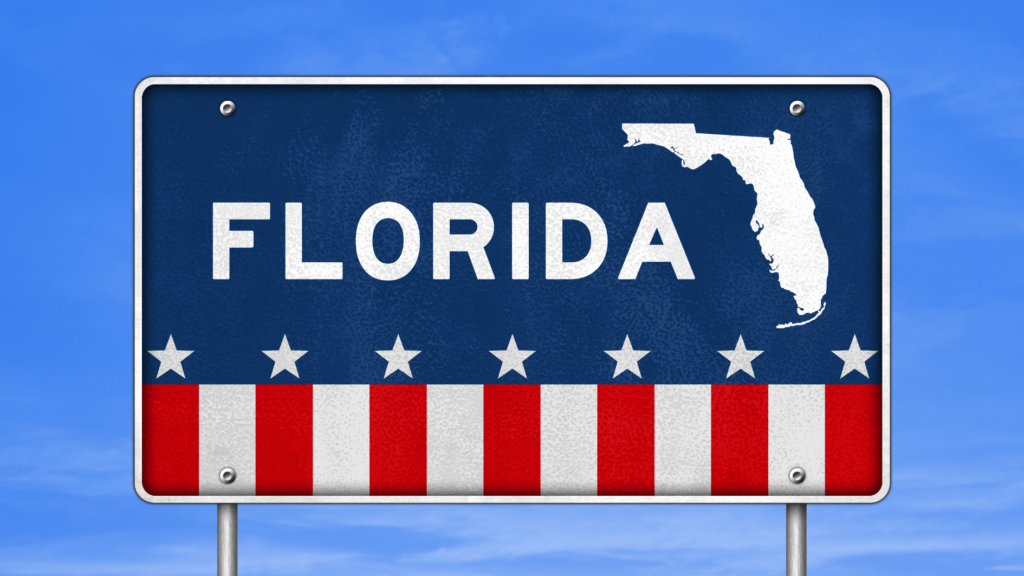
Property Assessed Clean Energy (PACE)
Floridians seeking financial assistance for solar panel installation can turn to the state’s Property Assessed Clean Energy (PACE) loan program. Administered by Florida PACE, a public entity established under Florida law, this program offers homeowners financing options for energy-efficient and hurricane-resistant home improvements. Through an interlocal agreement, Florida PACE oversees program administrators who collaborate with homeowners to finance their projects via long-term, fixed-rate assessments added to their property tax bills. Partnering with Florida PACE enables homeowners to enhance their homes’ safety, value, and energy efficiency while investing in a funding plan they can trust.
Net Metering In Florida
Florida has a net metering program that allows homeowners with solar panels to sell excess electricity generated to utility companies, in exchange for credits on future energy bills equal to the retail rate of electricity. At the end of the year, the utility companies have to pay customers for any unused credits, but the rate for unused credits is lower than the retail rate.
Solar for All
- The Community Power Coalition (CPC)’s SFA program, “Powering America Together,” will collaborate with and enhance the impact of the US Department of Energy’s National Community Solar Partnership and Community Power Accelerator program. Led by Inclusive Prosperity Capital, Inc., CPC comprises seasoned community solar experts who have contributed to the Community Power Accelerator as developers, lenders, trainers, and technical assistance providers. The program aims to support the development of low-income community solar projects, reduce carbon emissions, lower energy costs, and promote quality jobs, community wealth-building, energy resilience, and equitable workforce development.
- The Southeast Rural Power: SFA Coalition (SE Rural Power Coalition), led by Groundswell, will launch and implement the Southeast Rural Power: SFA Program (SE Rural Power SFA Program). This initiative aims to deliver residential-serving community solar, energy storage to enhance community resilience, direct solar savings, energy efficiency improvements, and greenhouse gas emissions reduction for low-income and disadvantaged households. The coalition comprises eligible subrecipient nonprofit electric cooperatives and municipal utilities serving some of the most impoverished and energy-burdened communities in the Southeast.
- The Florida Solar for All (FSFA) program is set to employ both proven and innovative strategies to implement and expand rooftop distributed solar energy, thereby generating enduring and transformative advantages for low-income and disadvantaged communities throughout Florida. Traditionally, these communities have faced exclusion due to barriers such as steep upfront costs and the absence of supportive statewide policies to foster an inclusive clean energy economy. Program funding will primarily expedite solar deployment in single-family homes, with a smaller portion allocated to multifamily and solar resilience projects.
- The Clean Energy Fund of Texas (TxCEF), in collaboration with the Bullard Center for Environmental and Climate Justice at Texas Southern University (BCECJ), collectively known as CEFBC, is dedicated to deploying technical assistance, private capital, and grants to minority-serving institutions. Together, these organizations aim to facilitate the establishment of residential-serving community solar projects in low-income and disadvantaged communities that face significant challenges related to energy policy and grid vulnerability. These projects are anticipated to result in emissions reductions, savings on household utility bills, generation of shared revenues through community ownership, and the mobilization of private capital.
- Teaming up with lead applicant GRID Alternatives, a coalition of ten mission-driven nonprofit solar and affordable housing providers and allies has collaborated to develop the Solar Access for Nationwide Affordable Housing Program (SANAH). SANAH is meticulously crafted to maximize benefits for households and communities while advancing equity, reducing harmful pollution, and combating climate change. The program offers a multitude of advantages, including expanded access to solar and storage for income-qualified households, significant energy savings and relief from burdensome costs, as well as additional benefits like efficiency improvements and electrification.
Georgia

Solar for All
- The Community Power Coalition (CPC)’s SFA program, “Powering America Together,” aims to collaborate with and enhance the impact of the US Department of Energy’s National Community Solar Partnership and Community Power Accelerator program. Led by Inclusive Prosperity Capital, Inc., CPC comprises seasoned community solar experts working to support the development of low-income community solar projects, reduce carbon emissions, lower energy costs, and promote quality jobs and community wealth-building.
- The Southeast Rural Power: SFA Coalition (SE Rural Power Coalition), led by Groundswell, will implement the Southeast Rural Power: SFA Program to deliver residential-serving community solar, energy storage, and energy efficiency improvements for low-income and disadvantaged households across eight states in the American Southeast. This initiative, which includes comprehensive project development and workforce development programs, aims to transform the residential solar market in the region while enhancing community resilience.
- The Georgia BRIGHT Communities Coalition, spearheaded by Capital Good Fund, seeks to extend solar energy benefits to disadvantaged communities in Georgia through various solar programs and investments in enabling upgrades and technical assistance.
- The Clean Energy Fund of Texas (TxCEF), in collaboration with the Bullard Center for Environmental and Climate Justice at Texas Southern University (BCECJ), aims to deploy technical assistance, private capital, and grants to facilitate the establishment of residential-serving community solar projects in low-income and disadvantaged communities across 19 states in the US South and Southeast, including EPA Regions 3, 4, and 6.
- Teaming up with GRID Alternatives, a coalition of ten nonprofit solar and affordable housing providers has developed the Solar Access for Nationwide Affordable Housing Program (SANAH) to expand access to solar and storage for income-qualified households, delivering significant energy savings and other benefits.
SELF Solar System Loans
SELF (Solar Energy Loan Fund) offers unsecured personal loans for home improvement projects, including energy efficiency and renewable energy upgrades. Key features include:
- Loan Amounts: $3,000 to $25,000
- Interest Rates: 5% to 9.99% fixed
- Terms: 3 to 10 years
- Fees: Origination fee of 2.5%, with a 1.25% discount for military, plus a project management fee of 2.75-2.99%
- Eligibility: Open to homeowners in Florida, Alabama, Georgia, South Carolina, and Tennessee
Hawaii

The Green Energy Money $aver (GEM$) On-Bill Program
While not directly targeting low-income households, Hawaii’s GEM program is structured to benefit them. Offering fixed-rate loans for solar panels and energy efficiency projects, payments are integrated into the household’s monthly electricity bill. Eligibility is determined by timely payment of electric bills in the past year, rather than conventional credit metrics. Both homeowners and renters qualify, with the loan obligation tied to the household’s electric meter, facilitating easy transferability. For residential solar projects, the minimum loan size is $5,000, with a requirement of achieving 10% utility bill savings, including the loan repayment fee. Visit the Hawaii Green Infrastructure Authority for application details.
Renewable Energy Technologies Income Tax Credit (RETITC)
This credit gives Hawaii residents an income tax break of 35% on residential solar installations (maximum $5,000).
Solar for All
- The Community Power Coalition (CPC)’s SFA program, “Powering America Together,” will collaborate with and enhance the impact of the US Department of Energy’s National Community Solar Partnership and Community Power Accelerator program. Led by Inclusive Prosperity Capital, Inc., CPC comprises seasoned community solar experts who have contributed to the Community Power Accelerator as developers, lenders, trainers, and technical assistance providers.
- The Hawaii Green Infrastructure Authority (HGIA), an agency affiliated with the State of Hawaii’s Department of Business, Economic Development, and Tourism, serves as Hawaii’s Green Bank. Through the utilization of HGIA’s comprehensive and risk-reducing financing mechanisms, the SFA-HI initiative will allocate program funds to finance residential rooftop solar and storage systems, as well as residential-serving, community-owned solar systems. These efforts will specifically target low-income households and disadvantaged communities throughout the state of Hawaii.
Idaho

Net Metering
Commonly available nationwide, it enables Idaho solar power customers to “sell back” any excess energy generated by their solar panels to the grid. This surplus energy is credited on subsequent monthly utility bills, helping homeowners recover their investment more quickly.
Solar for All
- The Community Power Coalition (CPC)’s SFA program, “Powering America Together,” will collaborate with and enhance the impact of the US Department of Energy’s National Community Solar Partnership and Community Power Accelerator program. Led by Inclusive Prosperity Capital, Inc., CPC comprises seasoned community solar experts who have contributed to the Community Power Accelerator as developers, lenders, trainers, and technical assistance providers.
- Teaming up with lead applicant GRID Alternatives, a coalition of ten mission-driven nonprofit solar and affordable housing providers and allies has collaborated to develop the Solar Access for Nationwide Affordable Housing Program (SANAH). SANAH is meticulously crafted to maximize benefits for households and communities while advancing equity, reducing harmful pollution, and combating climate change. The program offers a multitude of advantages, including expanded access to solar and storage for income-qualified households, significant energy savings and relief from burdensome costs, as well as additional benefits like efficiency improvements and electrification.
- The Idaho SFA Program aims to extend the economic and environmental advantages of solar energy to low-income, tribal, and disadvantaged communities statewide. This initiative, shaped by community input, will tackle both market and non-market obstacles to residential solar adoption through comprehensive outreach, workforce training, and technical and financial aid.
Illinois

Illinois Solar For All Program
- The Community Power Coalition (CPC)’s SFA program, “Powering America Together,” will collaborate with and enhance the impact of the US Department of Energy’s National Community Solar Partnership and Community Power Accelerator program. Led by Inclusive Prosperity Capital, Inc., CPC comprises seasoned community solar experts who have contributed to the Community Power Accelerator as developers, lenders, trainers, and technical assistance providers. The program aims to support the development of low-income community solar projects, reduce carbon emissions, lower energy costs, and promote quality jobs, community wealth-building, energy resilience, and equitable workforce development.
- Illinois’s initiative aims to extend the advantages of solar energy to low-income and disadvantaged communities statewide. Building upon the existing Illinois Solar for All (ILSFA) program and Adjustable Block Program/Illinois Shines (Illinois Shines), this program will provide financial assistance in the form of grants and loans to facilitate health and safety improvements, enabling upgrades, and the integration of energy storage. It will also expand residential solar access, promote energy sovereignty, and support community-driven projects. Additionally, critical capital will be allocated to disadvantaged solar vendors to enhance their businesses and capabilities.
- Teaming up with lead applicant GRID Alternatives, a coalition of ten mission-driven nonprofit solar and affordable housing providers and allies has collaborated to develop the Solar Access for Nationwide Affordable Housing Program (SANAH). SANAH is meticulously crafted to maximize benefits for households and communities while advancing equity, reducing harmful pollution, and combating climate change. The program offers a multitude of advantages, including expanded access to solar and storage for income-qualified households, significant energy savings and relief from burdensome costs, as well as additional benefits like efficiency improvements and electrification.
Net Metering
Residential and commercial customers of ComEd, Ameren and MidAmerican can participate in “net metering.”
Under net metering, solar customers reduce the amount of electricity needed from their utility by generating their own power, and utilities must buy any excess electricity not consumed on site – normally at a ratio of 1:1, meaning a kilowatt-hour exported equals a kilowatt-hour credited.
Illinois Shines Program
Illinois Shines makes “going solar” more affordable for people across Illinois. With valuable incentives, step-by-step guidance, important consumer protections, and an emphasis on equity, Illinois Shines ensures everyone in Illinois can play a role in our clean energy future. The Program supports the State’s targets to have 40% of its energy come from renewable energy sources such as solar by 2030, 50% by 2040, and 100% clean energy by 2050.
ComEd – Distributed Generation Rebates
As required by Illinois law, Commonwealth Edison offers rebates for distributed generation installation. Rebates are available as follows:
- For systems not owned by Residential or Under 100 kW Demand Class, or for Community Solar systems, the available rebate is $250 per kW
- For these customers, an additional rebate of $250 per kW is available for installation of energy storage systems
- For systems owned by Residential or Under 100 kW Demand Class customers, the available rebate is $300 per kW
- For these customers, an additional rebate of $300 per kW is available for installation of energy storage systems
Indiana

Renewable Energy Property Tax Exemption
If the value of your Indiana home increases after installing a solar power system (which is typically the case), your state property taxes won’t go up because of the installation. However, this doesn’t exempt you from paying state property taxes altogether.
NIPSCO Feed-In Tariff
NIPSCO is offering a feed-in tariff program for customers who generate electricity from solar, wind, or biomass. All NIPSCO electric customers in good standing are eligible for the program. Facilities must be between 3 kilowatts (kW) and 1 megawatt (MW), must be insured, and must meet interconnection standards. Payments are made to the customer on a monthly basis. Applications are available on the web site, as well as engineering standards and tariff information.
There is a non-refundable processing fee of $25 plus $1 per kW to be included with the application (i.e. the processing fee for a 100kW project would be $125).
Net Metering
Indiana no longer offers a statewide net metering program for new customers.
Those who installed systems before 2018 will receive net metering credits until 2047.
A system installed between the start of 2018 and the end of net metering for new customers would receive full net metering until July 1, 2032.
Solar for All
- The Community Power Coalition (CPC)’s SFA program, “Powering America Together,” will collaborate with and enhance the impact of the US Department of Energy’s National Community Solar Partnership and Community Power Accelerator program. Led by Inclusive Prosperity Capital, Inc., CPC comprises seasoned community solar experts who have contributed to the Community Power Accelerator as developers, lenders, trainers, and technical assistance providers.
- SFA Indiana (SFAI) is a collaborative effort involving municipal governments and community organizations in Fort Wayne, Gary, Indianapolis, and Columbus, alongside six statewide entities. Together, this coalition aims to solarize low-income households while revolutionizing Indiana’s solar market. They plan to achieve this by introducing innovative financial products and incentives that catalyze solar adoption among low-income residents and spur the integration of solar energy into new affordable housing projects. Through ongoing discussions with utility companies and in alignment with workforce development initiatives, the coalition is dedicated to spearheading Indiana’s transition to solar energy, starting from the grassroots level.
- Based in Ohio, the Industrial Heartland Solar Coalition brings together 31 communities across eight states, spanning from the Midwest to the rustbelt. Led by Growth Opportunity Partners (Growth Opps), the coalition is committed to propelling a just and clean energy transition in America’s industrial heartland communities. Its Solar for All (SFA) program, centrally managed by Growth Opps, is locally guided and implemented by 18 coalition members. Through our SFA initiative, the coalition aims to deliver energy savings to households, reduce greenhouse gas emissions, and provide training through solar workforce development programs. By leveraging tax credits and SFA grant funds, our coalition seeks to reach low- and moderate-income households, installing residential rooftop solar and more.
Iowa

Iowa Solar Sales Tax Exemption
Iowa allows a sales tax exemption for solar, wind, and hydroelectricity equipment. As of July 2023, the Iowa sales tax rate is 6%.
Net Metering
Net metering allows solar customers to exchange excess electricity produced by their home installations for credits. Surplus kilowatts are sent back to the grid and credited on your next electric bill. If you need additional energy beyond what your system generates, you can use these credits instead of paying extra for electricity from the grid. Currently, net metering is available to customers of MidAmerican Energy and Interstate Power and Light in the state.
Solar for All
- Teaming up with lead applicant GRID Alternatives, a coalition of ten mission-driven nonprofit solar and affordable housing providers and allies has collaborated to develop the Solar Access for Nationwide Affordable Housing Program (SANAH). SANAH is meticulously crafted to maximize benefits for households and communities while advancing equity, reducing harmful pollution, and combating climate change. The program offers a multitude of advantages, including expanded access to solar and storage for income-qualified households, significant energy savings, and relief from burdensome costs, as well as additional benefits like efficiency improvements and electrification.
Kansas
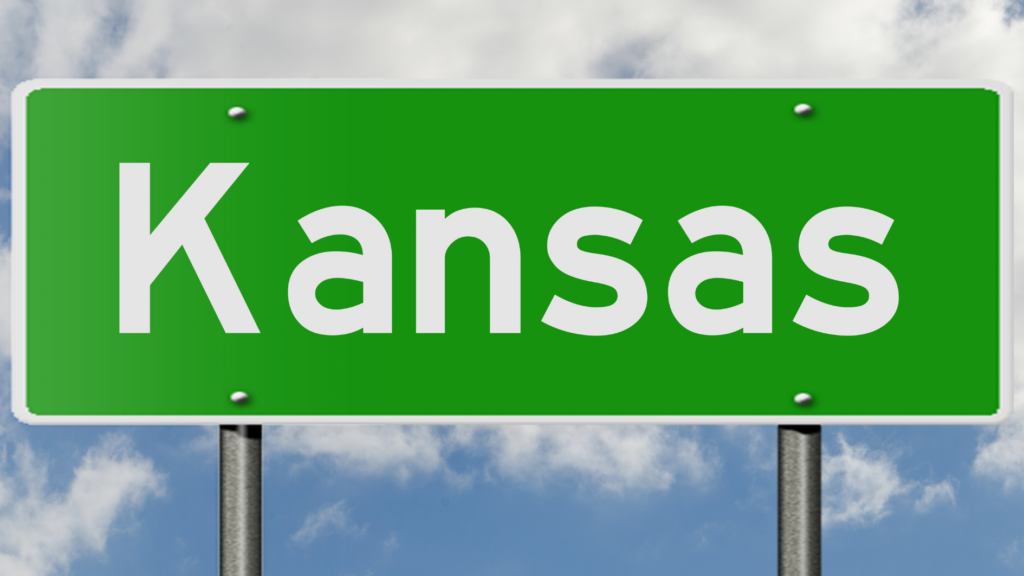
Kansas Solar Property Tax Exemption
Kansas offers a property tax exemption for projects producing electricity from renewable sources, including wind, solar, photovoltaic, biomass, hydropower, geothermal and landfill gas resources. The exemption applies to all property actually and regularly used in the generation of electricity from renewable sources, whether it is an industrial, commercial, utility or personal application.
Net Metering
Under current Kansas net metering law, solar production is recorded throughout the month. If a customer generates more kilowatt-hours (kWh) than they use, they are paid for the excess energy at the utility’s “system average cost” (wholesale rate).
This means you receive a much lower rate than retail if your panels generate more than you need over the course of a month. Consequently, Kansas residents might prefer smaller solar panel installations that align with their usage during the sunniest months to avoid earning less for excess kilowatt-hours.
Solar for All
Based in Ohio, the Industrial Heartland Solar Coalition brings together 31 communities across eight states, spanning from the Midwest to the rustbelt. Led by Growth Opportunity Partners (Growth Opps), the coalition is committed to propelling a just and clean energy transition in America’s industrial heartland communities. Its Solar for All (SFA) program, centrally managed by Growth Opps, is locally guided and implemented by 18 coalition members. Through our SFA initiative, the coalition aims to deliver energy savings to households, reduce greenhouse gas emissions, and provide training through solar workforce development programs. By leveraging tax credits and SFA grant funds, our coalition seeks to reach low- and moderate-income households, installing residential rooftop solar and more.
Kentucky

Net Metering
Net metering is available to all customers of investor-owned utilities and rural electric cooperatives, exempting TVA utilities. Kentucky’s requires the use of a single, bi-directional meter for net metering. Any additional meter, meters or distribution upgrades needed to monitor electricity flow in each direction will be installed at the customer’s expense. If the electricity fed back to the utility by the customer exceeds the electricity supplied by the utility during a billing period, the customer is credited for excess generation at the utility’s retail rate. This credit will appear on the customer’s next bill and will carry forward indefinitely. Credits are not transferable. The customer retains ownership of any Renewable Energy Credits.
Solar for All
- Kentucky’s low-income and disaster recovery households will experience significant benefits, including enhanced resilience, reduced energy burdens, savings on utility bills, and environmental improvements through decreased emissions. Ultimately, the Kentucky SFA program positions the state to capitalize on future financial assistance and utility programs for program expansion and growth.
- The Clean Energy Fund of Texas (TxCEF), in collaboration with the Bullard Center for Environmental and Climate Justice at Texas Southern University (BCECJ), collectively known as CEFBC, is dedicated to deploying technical assistance, private capital, and grants to minority-serving institutions. Together, these organizations aim to facilitate the establishment of residential-serving community solar projects in low-income and disadvantaged communities that face significant challenges related to energy policy and grid vulnerability. These projects are anticipated to result in emissions reductions, savings on household utility bills, generation of shared revenues through community ownership, and the mobilization of private capital.
Louisiana

Net Metering
Net metering isn’t mandated in Louisiana, so only certain customers have access to it. However, for those who can use it, net metering is a great incentive. If your solar panels generate more electricity than you need, the excess energy goes back to the grid, and you’ll receive a credit on your next energy bill, leading to long-term savings.
Solar for All
- The Community Power Coalition (CPC)’s SFA program, “Powering America Together,” will collaborate with and enhance the impact of the US Department of Energy’s National Community Solar Partnership and Community Power Accelerator program. Led by Inclusive Prosperity Capital, Inc., CPC comprises seasoned community solar experts who have contributed to the Community Power Accelerator as developers, lenders, trainers, and technical assistance providers. The program aims to support the development of low-income community solar projects, reduce carbon emissions, lower energy costs, and promote quality jobs, community wealth-building, energy resilience, and equitable workforce development.
- The Louisiana Solar for All (SFA) Program will introduce a pioneering resilient solar initiative, targeting low-income and disadvantaged communities, with a focus on deploying solar panels, energy storage systems, and essential upgrades in both single-family and multi-family residences. Additionally, the program will establish streamlined and affordable financing options to ensure inclusivity in the clean energy sector, including equitable loan programs tailored for community resilience hubs, resilient schools, and disadvantaged businesses. Louisiana aims to provide enduring support to successfully deployed projects, cultivate a robust workforce to bolster the state’s clean and resilient economy, and prioritize community involvement in the planning and execution of this initiative.
- The Clean Energy Fund of Texas (TxCEF), in collaboration with the Bullard Center for Environmental and Climate Justice at Texas Southern University (BCECJ), collectively known as CEFBC, is dedicated to deploying technical assistance, private capital, and grants to minority-serving institutions. Together, these organizations aim to facilitate the establishment of residential-serving community solar projects in low-income and disadvantaged communities that face significant challenges related to energy policy and grid vulnerability. These projects are anticipated to result in emissions reductions, savings on household utility bills, generation of shared revenues through community ownership, and the mobilization of private capital.
Maine

Maine Solar Property Tax Exemption
Maine offers a property tax exemption for solar and wind energy equipment generating heat or electricity, as long as all of the energy is
- used on-site where the property is located or
- transmitted through the facilities of a transmission and distribution utility, and a customer or customers receive a bill credit for the energy produced.
Net Energy Billing
Maine offers two compensation options for customer generators and subscribers to community solar projects. Any customer may participate in the Net Energy Billing kWh Credit Program, but only non-residential customers can participate in the Net Energy Billing Tariff Rate Program. Net The generation facility can be located on the customer’s property or on another property within the same utility service territory.
PACE Home Energy Loan
The Maine Efficiency Trust offers Property Assessed Clean Energy (PACE) loans at affordable rates to assist homeowners in financing new solar energy systems. These systems must be installed by vendors registered through Efficiency Maine. Key benefits include:
- Ownership of the system from day one
- No fees
- Interest rates as low as 5.99%
PACE loans are particularly suitable for homeowners who prefer not to make a substantial upfront investment or lease a system. While PACE financing adds to your monthly property tax bill, the savings from solar panels on utilities should counterbalance this increase. Maine residents can apply for a PACE loan on Efficiency Maine’s website, with the agency guiding them through each step of the process if they qualify.
Solar for All
- Maine’s program, MESA, will utilize this funding to implement four financial assistance program channels, aiming to comprehensively tackle barriers encountered by low-income and disadvantaged households. These channels include single-family and multifamily on-site solar programs, along with targeted assistance for cooperatively-owned community solar. Energy storage is integrated across all four channels to enhance resilience and optimize value. MESA also suggests a comprehensive array of technical assistance, including expanded opportunities for workforce development, support for siting and permitting, and additional assistance to address barriers like interconnection challenges.
- The Community Power Coalition (CPC)’s SFA program, “Powering America Together,” will collaborate with and enhance the impact of the US Department of Energy’s National Community Solar Partnership and Community Power Accelerator program. Led by Inclusive Prosperity Capital, Inc., CPC comprises seasoned community solar experts who have contributed to the Community Power Accelerator as developers, lenders, trainers, and technical assistance providers.
Maryland

Net Metering
Net metering is available statewide until the aggregate capacity of all net-metered systems reaches 3,000 MW.
Solar for All
- The Community Power Coalition (CPC)’s SFA program, “Powering America Together,” will collaborate with and enhance the impact of the US Department of Energy’s National Community Solar Partnership and Community Power Accelerator program. Led by Inclusive Prosperity Capital, Inc., CPC comprises seasoned community solar experts who have contributed to the Community Power Accelerator as developers, lenders, trainers, and technical assistance providers.
- The Maryland Solar for All (SFA) Program brings together a coalition of government, industry, utility, academic, and non-profit organizations, all committed to achieving the desired outcomes with these federal funds. The initiative will focus on mobilizing capital, facilitating workforce preparedness, and building capacity for low-income, underserved, and disadvantaged communities to access solar energy benefits. Investments will target both single-family and multi-family residential properties, reducing energy burdens and providing ownership opportunities for eligible households across the state.
- The Clean Energy Fund of Texas (TxCEF), in collaboration with the Bullard Center for Environmental and Climate Justice at Texas Southern University (BCECJ), collectively known as CEFBC, is dedicated to deploying technical assistance, private capital, and grants to minority-serving institutions. Together, these organizations aim to facilitate the establishment of residential-serving community solar projects in low-income and disadvantaged communities that face significant challenges related to energy policy and grid vulnerability. These projects are anticipated to result in emissions reductions, savings on household utility bills, generation of shared revenues through community ownership, and the mobilization of private capital.
- Teaming up with lead applicant GRID Alternatives, a coalition of ten mission-driven nonprofit solar and affordable housing providers and allies has collaborated to develop the Solar Access for Nationwide Affordable Housing Program (SANAH). SANAH is meticulously crafted to maximize benefits for households and communities while advancing equity, reducing harmful pollution, and combating climate change. The program offers a multitude of advantages, including expanded access to solar and storage for income-qualified households, significant energy savings and relief from burdensome costs, as well as additional benefits like efficiency improvements and electrification.
Massachusetts

Residential Renewable Energy Income Tax Credit
Massachusetts offers a generous incentive for residents to adopt renewable energy systems in their primary homes. The state allows a tax credit of up to $1,000, which is 15% of the net expenditure incurred for installing eligible renewable energy systems, including solar water and space heating, photovoltaics (PV), and wind energy systems.
This credit is applicable to any owner or tenant of a residential property and is available to the original owner/occupant of a newly constructed home. Joint owners can share the credit proportionally based on their ownership interest.
The credit can be carried forward for up to three successive years if the amount exceeds the resident’s income tax liability for the current year. However, to qualify, the renewable energy system must be newly installed, with the original use beginning with the taxpayer, and it should reasonably be expected to remain operational for at least five years.
Net Metering
Massachusetts has implemented a comprehensive net metering policy to encourage the adoption of renewable energy sources. The state’s investor-owned utilities are mandated to offer net metering, which allows customers to receive credits for the excess electricity their renewable energy systems generate and feed back into the grid.
While municipal utilities in Massachusetts are not obligated to provide net metering, they have the option to do so voluntarily. It’s important to note that there are no electric cooperatives operating in the state.
The net metering policy in Massachusetts categorizes renewable energy facilities into three classes based on their capacity:
Class I Facilities: These include any type of generating system with a capacity of up to 60 kilowatts (kW).
Class II Facilities: This category encompasses systems with a capacity greater than 60 kW and up to 1 megawatt (MW), generating electricity from agricultural products, solar energy, or wind energy.
Class III Facilities: These are systems with a capacity greater than 1 MW and up to 2 MW, generating electricity from agricultural products, solar energy, or wind energy.
Solar Massachusetts Renewable Target (SMART) Program
The Solar Massachusetts Renewable Target (SMART) program stands as one of the state’s most comprehensive solar incentive initiatives. Under this program, homeowners have the opportunity to earn ongoing payments for the solar energy systems installed on their properties.
The SMART program is available to customers of Eversource, National Grid, and Unitil, which are investor-owned utilities operating in Massachusetts. These providers compensate customers with a fixed rate for every kilowatt-hour of electricity produced by their solar systems. The rate varies for each household, depending on a wide range of factors specific to their situation.
One of the key features of the SMART program is that the incentives are designed to decrease over time, reflecting the growing adoption and cost-effectiveness of solar energy technology. Currently, the payments under this program are guaranteed for a period of 10 years from the date of enrollment.
Solar for All
- The Massachusetts SFA Program aims to extend its benefits to all low-income and disadvantaged communities across the state, aiming to maximize participation and impact in historically underserved areas. A significant portion of the program’s budget will be dedicated to funding solar photovoltaic projects to achieve the greatest possible reduction in greenhouse gas emissions. The program encompasses various initiatives, including a residential zero-interest loan initiative, a residential lease initiative, a public affordable housing procurement initiative, a private affordable housing financing initiative, and a low-income community shared solar initiative.
- Teaming up with lead applicant GRID Alternatives, a coalition of ten mission-driven nonprofit solar and affordable housing providers and allies has collaborated to develop the Solar Access for Nationwide Affordable Housing Program (SANAH). SANAH is meticulously crafted to maximize benefits for households and communities while advancing equity, reducing harmful pollution, and combating climate change. The program offers a multitude of advantages, including expanded access to solar and storage for income-qualified households, significant energy savings and relief from burdensome costs, as well as additional benefits like efficiency improvements and electrification.
- The Community Power Coalition (CPC)’s SFA program, “Powering America Together,” will collaborate with and enhance the impact of the US Department of Energy’s National Community Solar Partnership and Community Power Accelerator program. Led by Inclusive Prosperity Capital, Inc., CPC comprises seasoned community solar experts who have contributed to the Community Power Accelerator as developers, lenders, trainers, and technical assistance providers. The program aims to support the development of low-income community solar projects, reduce carbon emissions, lower energy costs, and promote quality jobs, community wealth-building, energy resilience, and equitable workforce development.
Michigan
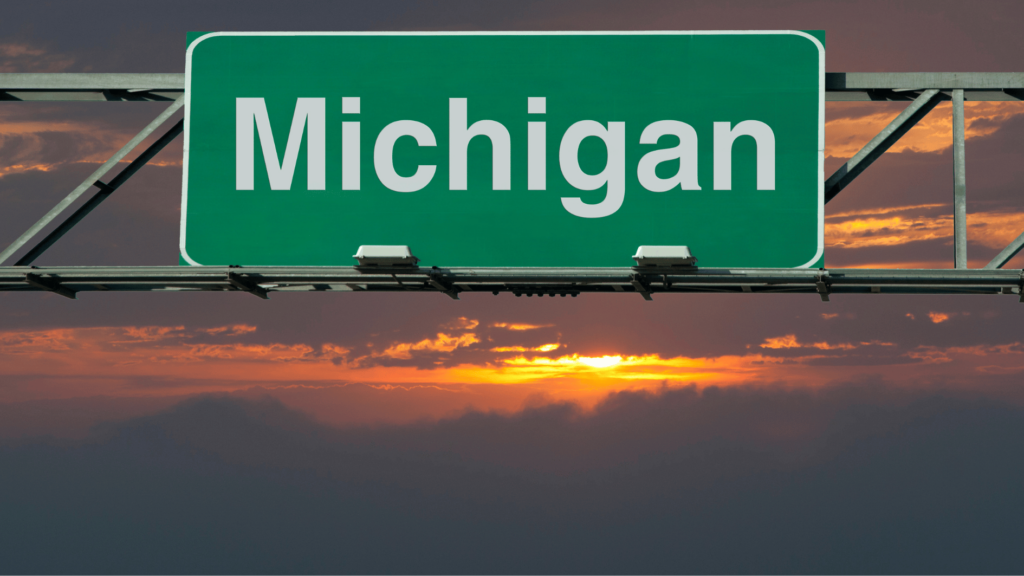
Michigan’s Renewable Energy System Property Tax Exemption
The reinstated renewable energy system property tax exemption ensures that homeowners with solar or other renewable energy installations will not face increased property taxes due to the added value these systems bring to their homes. While homeowners will still be required to pay regular property taxes, they will be exempt from any additional tax burden resulting from the installation of renewable energy systems.
By eliminating the potential for heightened property taxes on homes with renewable energy systems, Michigan aims to remove a potential barrier to the widespread adoption of these technologies. This exemption recognizes the environmental benefits associated with renewable energy sources and encourages homeowners to invest in sustainable solutions without facing undue financial burdens.
Net Metering
Michigan residents who have solar panels installed can still receive credits for producing extra electricity, although the amount they earn is now lower compared to before and also lower than what residents in other states may receive.
Solar for All
- The Community Power Coalition (CPC)’s SFA program, “Powering America Together,” will collaborate with and enhance the impact of the US Department of Energy’s National Community Solar Partnership and Community Power Accelerator program. Led by Inclusive Prosperity Capital, Inc., CPC comprises seasoned community solar experts who have contributed to the Community Power Accelerator as developers, lenders, trainers, and technical assistance providers. The program aims to support the development of low-income community solar projects, reduce carbon emissions, lower energy costs, and promote quality jobs, community wealth-building, energy resilience, and equitable workforce development.
- The MI Healthy Solar for All (SFA) program is a comprehensive statewide initiative aimed at deploying residential rooftop and other solar projects to benefit low-income and disadvantaged households throughout Michigan. By tackling existing barriers, the program aims to enhance solar energy accessibility for eligible households. Through collaborative planning efforts, the state will establish specific criteria for financial and technical assistance tailored to best serve Michigan households, while leveraging complementary public and private funding sources to support residential rooftop installation, storage, and upgrades for homes in need.
- The Midwest Tribal Energy Resources Association, Inc. (MTERA), along with coalition partners GRID Alternatives (GRID), the Alliance for Tribal Clean Energy (ATCE), and the Native CDFI Network (NCN), will implement Tribally-owned residential solar projects, including storage and essential upgrades, benefiting the 35 Tribes located in Michigan, Minnesota, and Wisconsin. Based in Wisconsin, the coalition will capitalize on the extensive expertise and experience of its members to develop a program that empowers Tribes and tribal energy advocates. It will offer technical assistance for project deployment to aid in planning and constructing residential solar projects on Tribal Lands in the Midwest, while also focusing on workforce development to bolster Tribal self-determination and self-sufficiency.
- Based in Ohio, the Industrial Heartland Solar Coalition brings together 31 communities across eight states, spanning from the Midwest to the rustbelt. Led by Growth Opportunity Partners (Growth Opps), the coalition is committed to propelling a just and clean energy transition in America’s industrial heartland communities. Its Solar for All (SFA) program, centrally managed by Growth Opps, is locally guided and implemented by 18 coalition members. Through our SFA initiative, the coalition aims to deliver energy savings to households, reduce greenhouse gas emissions, and provide training through solar workforce development programs.
- Teaming up with lead applicant GRID Alternatives, a coalition of ten mission-driven nonprofit solar and affordable housing providers and allies has collaborated to develop the Solar Access for Nationwide Affordable Housing Program (SANAH). SANAH is meticulously crafted to maximize benefits for households and communities while advancing equity, reducing harmful pollution, and combating climate change. The program offers a multitude of advantages, including expanded access to solar and storage for income-qualified households, significant energy savings and relief from burdensome costs, as well as additional benefits like efficiency improvements and electrification.
Minnesota

Minnesota’s Xcel Energy Solar*Rewards Program
Solar*Rewards Incentives offer a performance-based incentive paid annually for 10 years, with checks issued in January and February. Up-front incentives are available for income-qualified products and are based on the proposed system size in kilowatts direct current (kW DC). Residential systems receive a performance incentive of $0.03 per kWh. Income-qualified residential systems also receive a performance incentive of $0.03 per kWh, plus an up-front incentive of $2.75 per watt.
For the Solar*Rewards program, system size is limited to 40 kW AC or less and must not produce more than 120 percent of the customer’s annual kWh consumption, based on the past 12 months of data.
Net Metering
The Minnesota Public Utilities Commission’s net metering program allows customers who generate their own electricity to receive compensation for excess energy supplied to the grid. The compensation rate varies based on system size, utility type, and chosen rate structure. Options include average retail utility energy rates, simultaneous purchase and sale rates, and time-of-day rates. Customers can receive payments as bill credits or checks, and may also bank kWh credits for future use. The program aims to encourage distributed energy generation while ensuring fair compensation for excess production.
Minnesota Power’s SolarSense program
Minnesota Power’s SolarSense program aims to make solar energy more accessible to customers by offering rebates to reduce the initial costs of installing solar systems. This program specifically caters to customers who are interested in installing solar electric photovoltaic (PV) systems. The allocation of funds for the year 2024 is done through a lottery system, ensuring fairness in the distribution process. To be considered for funding, customers must submit a SolarSense application. The application period begins on March 1st of each program year. The total budget for 2024 is $87,675, with the possibility of additional funds carried over from previous years. As projects receive rebate allocations, the corresponding funds are moved to the reserved box. Once the project is completed and the rebates are processed, the funds are then transferred to the paid box. It is important to note that any reserved funds that are not utilized may be returned to the pool for reallocation.
Solar for All
- The Community Power Coalition (CPC)’s SFA program, “Powering America Together,” will collaborate with and enhance the impact of the US Department of Energy’s National Community Solar Partnership and Community Power Accelerator program. Led by Inclusive Prosperity Capital, Inc., CPC comprises seasoned community solar experts who have contributed to the Community Power Accelerator as developers, lenders, trainers, and technical assistance providers. The program aims to support the development of low-income community solar projects, reduce carbon emissions, lower energy costs, and promote quality jobs, community wealth-building, energy resilience, and equitable workforce development.
- The Division of Energy Resources within the Minnesota Commerce Department (COMM) is committed to facilitating residential solar access for low-income and disadvantaged households throughout Minnesota, including federally recognized Tribal communities within the state’s boundaries. Leveraging Solar for All (SFA) funds, COMM will offer financial support in the form of grants, loans, and credit enhancements, alongside workforce development initiatives, interconnection assistance, pre-development technical guidance, energy navigation services, community engagement and educational efforts, and administrative support.
- The Midwest Tribal Energy Resources Association, Inc. (MTERA), along with coalition partners GRID Alternatives (GRID), the Alliance for Tribal Clean Energy (ATCE), and the Native CDFI Network (NCN), will implement Tribally-owned residential solar projects, including storage and essential upgrades, benefiting the 35 Tribes located in Michigan, Minnesota, and Wisconsin. Based in Wisconsin, the coalition will capitalize on the extensive expertise and experience of its members to develop a program that empowers Tribes and tribal energy advocates. It will offer technical assistance for project deployment to aid in planning and constructing residential solar projects on Tribal Lands in the Midwest, while also focusing on workforce development to bolster Tribal self-determination and self-sufficiency.
- Grid Alternatives’ Western Indigenous Network Solar For All (WIN-SFA) program draws on its extensive experience in working with Tribal communities, aiming to maximize benefits for Tribal households and advance energy sovereignty while addressing environmental degradation and climate change. Through the provision of financial assistance in the form of grants and incentives, coupled with technical support from organizations with expertise in equitable deployment of renewable energy in Tribal settings, WIN-SFA seeks to bring solar power to thousands of Native American households nationwide.
- Teaming up with lead applicant GRID Alternatives, a coalition of ten mission-driven nonprofit solar and affordable housing providers and allies has collaborated to develop the Solar Access for Nationwide Affordable Housing Program (SANAH). SANAH is meticulously crafted to maximize benefits for households and communities while advancing equity, reducing harmful pollution, and combating climate change. The program offers a multitude of advantages, including expanded access to solar and storage for income-qualified households, significant energy savings and relief from burdensome costs, as well as additional benefits like efficiency improvements and electrification.
Mississippi
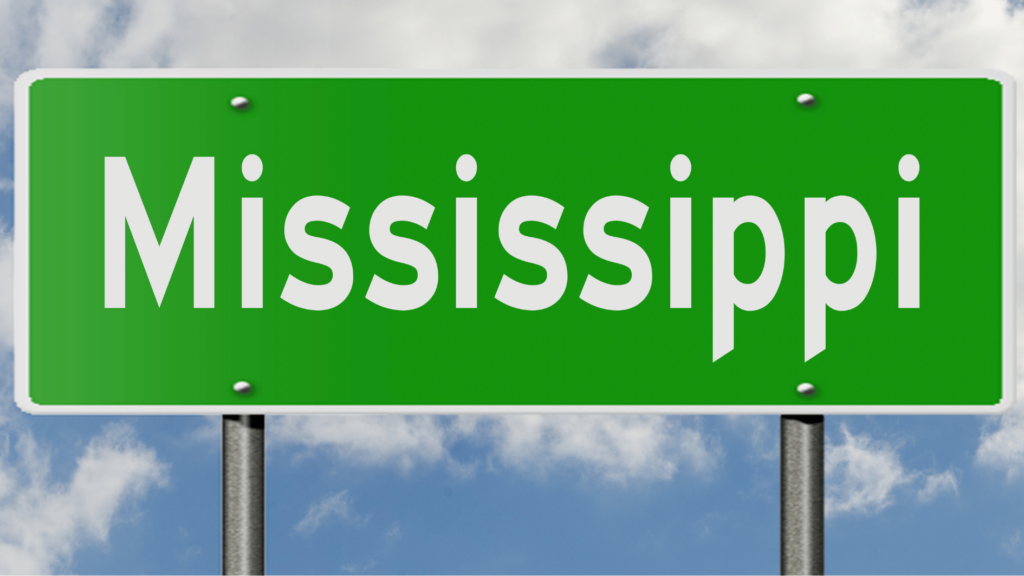
Net Metering
The important thing to know is that in Mississippi, the energy your solar system produces and is used in your home directly reduces your bill by the full retail amount. Any excess energy that gets sent to the grid is measured separately by a smart meter installed at your home, and you receive a credit for that energy on your next bill.
Entergy Mississippi Low-to-Moderate Income Residential Incentive Program
Entergy Mississippi provides a one-time $3,000 cash incentive for low-to-moderate income residential customers who install a renewable distributed generation facility. This incentive is available on a first-come, first-served basis, and the facility must have a capacity of at least 4 kilowatts-DC (kW-DC) and generate no more than 110% of the customer’s annual peak demand.
Additionally, Entergy Mississippi offers the Residential Demand Response Battery Incentive Program. However, customers can only choose one of these two incentives, and no incentives will be available beyond the year 2027.
Solar for All
- The Southeast Rural Power: SFA Coalition (SE Rural Power Coalition), led by Groundswell, will launch and implement the Southeast Rural Power: SFA Program (SE Rural Power SFA Program). This initiative aims to deliver residential-serving community solar, energy storage to enhance community resilience, direct solar savings, energy efficiency improvements, and greenhouse gas emissions reduction for low-income and disadvantaged households. The coalition comprises eligible subrecipient nonprofit electric cooperatives and municipal utilities serving some of the most impoverished and energy-burdened communities in the Southeast.
- Hope Enterprise Corporation (HEC) is dedicated to advancing affordable and resilient solar energy access for low-income and disadvantaged households throughout Mississippi, employing a comprehensive strategy. The “Residential Rooftop Solar for Low-Income Households” initiative aims to cultivate a residential rooftop solar leasing market in regions served by the state’s investor-owned utilities, ensuring savings for every low-income household while bolstering the local solar installer ecosystem. The second approach, “Multifamily Behind-the-Meter Solar for Low-Income Tenants,” concentrates on multifamily buildings, endeavoring to reduce energy costs for low-income tenant households through strategic financial mechanisms and collaborations with local housing developers. Both strategies rely on innovative financing, strategic partnerships, and HEC’s extensive experience and expertise in serving disadvantaged communities in the state.
Missouri

Net Metering
Missouri offers an attractive solar incentive through its net metering program. In 2007, the state passed legislation enabling net metering for homeowners with solar systems up to 100 kilowatts (kW). Major utility companies in Missouri, including Ameren, Columbia Water & Light, Evergy, and Liberty Utilities, all participate in net metering programs.
Through net metering, homeowners can receive rebates or credits on their utility bills for the excess solar energy their systems generate and send back to the grid. The specific rebates and incentives vary among the different utility providers. However, the net metering program allows Missouri residents to offset their electricity costs by effectively receiving compensation for the solar power they contribute to the grid.
Columbia Water & Light – Solar Rebates
Columbia Water & Light offers rebates for solar systems, and the rebate amounts are calculated based on additive tiers. This means that your total rebate is determined by adding together the rebate values from each applicable tier. The rebate tiers are as follows:
- 0 – 10 kW: $375 – $625 per kW.
- 10 – 50 kW: $300 – $500 per kW (in addition to the rebate from the previous tier).
- 50 – 100 kW: $150 – $250 per kW (in addition to the rebates from the previous tiers).
- More than 100 kW: No additional rebates are offered beyond the 100 kW tier.
Show Me PACE
When it comes to the repayment period for improvements financed through Show Me PACE, it should not exceed the expected life of the improvement itself. Show Me PACE charges a one-time program operation fee for standard projects*, which is 1.25% for projects under $1,000,000 and 1% for projects over $1,000,000, with a cap of $40,000. This fee is collected during the closing process.
Additionally, Show Me PACE collects an annual administrative fee of less than $1000. This fee is included in the annual special charge paid by the property owner. It’s important to note that the repayment term should align with the expected lifespan of the improvement to ensure that the investment is fully realized before the end of the repayment period.
Solar for All
- The Community Power Coalition (CPC)’s SFA program, “Powering America Together,” will collaborate with and enhance the impact of the US Department of Energy’s National Community Solar Partnership and Community Power Accelerator program. Led by Inclusive Prosperity Capital, Inc., CPC comprises seasoned community solar experts who have contributed to the Community Power Accelerator as developers, lenders, trainers, and technical assistance providers. The program aims to support the development of low-income community solar projects, reduce carbon emissions, lower energy costs, and promote quality jobs, community wealth-building, energy resilience, and equitable workforce development.
- Based in Ohio, the Industrial Heartland Solar Coalition brings together 31 communities across eight states, spanning from the Midwest to the rustbelt. Led by Growth Opportunity Partners (Growth Opps), the coalition is committed to propelling a just and clean energy transition in America’s industrial heartland communities. Its Solar for All (SFA) program, centrally managed by Growth Opps, is locally guided and implemented by 18 coalition members. Through our SFA initiative, the coalition aims to deliver energy savings to households, reduce greenhouse gas emissions, and provide training through solar workforce development programs.
- The Clean Energy Fund of Texas (TxCEF), in collaboration with the Bullard Center for Environmental and Climate Justice at Texas Southern University (BCECJ), collectively known as CEFBC, is dedicated to deploying technical assistance, private capital, and grants to minority-serving institutions. Together, these organizations aim to facilitate the establishment of residential-serving community solar projects in low-income and disadvantaged communities that face significant challenges related to energy policy and grid vulnerability. These projects are anticipated to result in emissions reductions, savings on household utility bills, generation of shared revenues through community ownership, and the mobilization of private capital.
- Missouri’s Solar for All (SFA) program is set to leverage the unprecedented Greenhouse Gas Reduction Fund to bring solar energy to thousands of households in disadvantaged communities across the state. Spearheaded by the Missouri Environmental Improvement and Energy Resources Authority (EIERA), this initiative aims to curtail pollution statewide, fortify resilient and healthy communities, and ensure substantial energy-saving benefits for Missouri residents. To achieve these objectives, EIERA will offer a mix of forgivable loans, enabling solar adoption without the long-term repayment commitments typical of traditional loans. Additionally, low-interest loans will be provided through a revolving loan fund, thereby perpetuating the state’s solar capacity expansion and impact in disadvantaged communities even after the program’s conclusion. Furthermore, the program will mobilize financing and private capital into solar projects, paving the way for market transformation in clean technologies.
Montana

Net Metering
Montana provides net metering opportunities for solar power system owners. The state requires all investor-owned utilities to offer net metering programs. Through net metering, if your solar power system generates excess energy beyond your household’s consumption, you can receive a rebate in the form of a credit on your utility bill.
It’s important to note that in Montana, the net metering rebate is applied as a credit towards your electricity bill, rather than a cash payment. While some states allow for cash reimbursement for excess solar energy sent back to the grid, Montana’s net metering program operates solely through bill credits. This net metering policy enables Montana residents with solar power systems to offset their electricity costs by leveraging the excess energy their systems produce, effectively reducing their overall utility expenses.
Renewable Energy Systems Exemption
Montana offers a Renewable Energy Systems Exemption, which serves as a property tax incentive for those who install solar panels on their property. This exemption allows homeowners to avoid any additional property taxes that may be incurred due to the increased value of their property after installing solar panels.
The Renewable Energy Systems Exemption provides a tax exemption for up to 10 years, effectively shielding homeowners from potential property tax increases resulting from the installation of solar panels. This incentive aims to encourage the adoption of renewable energy systems by alleviating the potential financial burden of higher property taxes.
By taking advantage of this exemption, Montana residents can invest in solar energy for their homes without the concern of facing increased property tax obligations for a substantial period, making the transition to solar power more attractive and financially viable.
Alternative Energy Revolving Loan Program
The Alternative Energy Revolving Loan Program (AERLP) in Montana offers low-interest loans to support the installation of alternative energy systems and energy conservation measures. Managed by the Montana Energy Office under the Department of Environmental Quality (DEQ), the program finances projects for individuals, small businesses, nonprofits, local governments, and university units. Loans are available up to $40,000 with a fixed interest rate of 3.5% for terms up to 10 years. The program is funded by air quality penalties collected by DEQ.
Solar for All
- The Community Power Coalition (CPC)’s SFA program, “Powering America Together,” will collaborate with and enhance the impact of the US Department of Energy’s National Community Solar Partnership and Community Power Accelerator program. Led by Inclusive Prosperity Capital, Inc., CPC comprises seasoned community solar experts who have contributed to the Community Power Accelerator as developers, lenders, trainers, and technical assistance providers. The program aims to support the development of low-income community solar projects, reduce carbon emissions, lower energy costs, and promote quality jobs, community wealth-building, energy resilience, and equitable workforce development.
- The Montana Solar for All (SFA) Program is poised to extend economic and environmental advantages of solar energy to low-income, Tribal, and disadvantaged communities throughout the state. This initiative will employ a community-centered approach to address both market and non-market barriers to residential solar adoption, utilizing outreach, workforce development, and technical and financial assistance. By leveraging and mobilizing additional capital, the program aims to maximize the number of households benefiting from single-family and multifamily residential solar projects.
- The Northern Plains Tribal Solar for All (NPT-SFA) program aims to revolutionize energy and economic systems within disadvantaged communities through substantial and concentrated investments. Initially focusing on North Dakota, South Dakota, and Montana, with later expansion to include tribes in Wisconsin and Wyoming, NPT-SFA draws inspiration from a successful pilot program conducted on the Northern Cheyenne reservation in Montana. Central to its strategy is the establishment of Tribally-owned and managed portfolios of solar systems installed at the homes of Tribal members. By capitalizing on factors such as high electricity prices, frequent power outages, and inefficient housing stock, NPT-SFA aims to implement impactful initiatives.
- Teaming up with lead applicant GRID Alternatives, a coalition of ten mission-driven nonprofit solar and affordable housing providers and allies has collaborated to develop the Solar Access for Nationwide Affordable Housing Program (SANAH). SANAH is meticulously crafted to maximize benefits for households and communities while advancing equity, reducing harmful pollution, and combating climate change. The program offers a multitude of advantages, including expanded access to solar and storage for income-qualified households, significant energy savings and relief from burdensome costs, as well as additional benefits like efficiency improvements and electrification.
Nebraska

Net Metering
Nebraska offers a net metering program for residential solar system owners. Through net metering, homeowners who generate excess energy from their solar panels can receive a credit on their utility bill. This credit is applied towards the next billing period, effectively offsetting a portion of the household’s electricity costs.
Net metering in Nebraska is available for solar systems up to 25 kilowatts (kW) in capacity. It’s important to note that utility companies in the state have the authority to set their own rates for electricity. As a result, the amount of credits received through net metering can vary depending on the specific utility provider.
While the net metering program enables Nebraska residents to benefit from the excess solar energy their systems produce, the value of the credits will be influenced by the electricity rates established by their respective utility companies. Nonetheless, net metering provides an opportunity for solar system owners to reduce their overall electricity expenses by leveraging the surplus energy generated from their renewable energy installations.
Dollar and Energy Savings Loans Program
Nebraska offers the Dollar and Energy Savings Loans program, which provides fixed-rate loans to homeowners across the state for various purposes, including solar installations. This program is facilitated through participating lenders.
The loan terms under the Dollar and Energy Savings Loans program are quite attractive. The interest rates are set at 5%, 3.5%, or even lower, depending on the specific lender and loan details. Additionally, the loan repayment period can extend up to 15 years, providing homeowners with flexible repayment options.
The maximum loan amount available under this program varies based on the type of property where the solar system is being installed. For single-family homes, the loan maximum is $125,000, while for multi-family properties, the maximum loan amount can reach up to $500,000.
With its favorable interest rates, extended repayment periods, and substantial loan limits, the Dollar and Energy Savings Loans program offers Nebraska residents a viable financing solution to make solar installations more accessible and affordable, enabling them to take advantage of the long-term benefits of renewable energy while managing the upfront costs effectively.
Solar for All
- The Community Power Coalition (CPC)’s SFA program, “Powering America Together,” will collaborate with and enhance the impact of the US Department of Energy’s National Community Solar Partnership and Community Power Accelerator program. Led by Inclusive Prosperity Capital, Inc., CPC comprises seasoned community solar experts who have contributed to the Community Power Accelerator as developers, lenders, trainers, and technical assistance providers. The program aims to support the development of low-income community solar projects, reduce carbon emissions, lower energy costs, and promote quality jobs, community wealth-building, energy resilience, and equitable workforce development.
- The Nebraska Solar for All (SFA) program is poised to become the inaugural initiative guaranteeing equitable access to solar power for low-income and disadvantaged households across the state. Designed to serve the entirety of Nebraska, this program promises prompt reductions in greenhouse gas emissions, immediate cost savings for low-income households, avenues for ownership, and sets the stage for enduring market transformation in residential solar services. Nebraska SFA will prioritize rooftop and multifamily solar installations, with a specific emphasis on benefiting low-income households. Additionally, it will allocate a Tribal set-aside to be implemented collaboratively with Nebraska Tribes.
Nevada

Net Metering
Net metering is an advantageous way to offset the initial costs of installing solar panels and continue to save money over time. Here’s how it works: even with solar panels, most people stay connected to the grid for energy needs during times when solar production is insufficient, such as at night or during the winter months.
With net metering, any excess energy produced by solar panels is sent to the utility company, helping to power other customers. In return, you receive a credit for the solar energy contributed, which can reduce your utility bill.
In Nevada, most residents use NV Energy for their electricity. Regulations require NV Energy to offer a nearly direct exchange of solar power for credits within the same billing cycle.
Solar for All
- The Community Power Coalition (CPC)’s SFA program, “Powering America Together,” will collaborate with and enhance the impact of the US Department of Energy’s National Community Solar Partnership and Community Power Accelerator program. Led by Inclusive Prosperity Capital, Inc., CPC comprises seasoned community solar experts who have contributed to the Community Power Accelerator as developers, lenders, trainers, and technical assistance providers. The program aims to support the development of low-income community solar projects, reduce carbon emissions, lower energy costs, and promote quality jobs, community wealth-building, energy resilience, and equitable workforce development.
- The Nevada SFA (NSFA) initiative aims to empower low-income and disadvantaged communities across Nevada to embrace and benefit from solar energy through a blend of financial and technical support, fostering a robust and self-sufficient solar market in the state. NSFA will oversee comprehensive financial aid programs statewide, targeting single-family homeowners, affordable housing developments, and residential-serving community solar projects, ensuring equitable solar access for all Nevadans.
- Teaming up with lead applicant GRID Alternatives, a coalition of ten mission-driven nonprofit solar and affordable housing providers and allies has collaborated to develop the Solar Access for Nationwide Affordable Housing Program (SANAH). SANAH is meticulously crafted to maximize benefits for households and communities while advancing equity, reducing harmful pollution, and combating climate change. The program offers a multitude of advantages, including expanded access to solar and storage for income-qualified households, significant energy savings and relief from burdensome costs, as well as additional benefits like efficiency improvements and electrification.
New Hampshire

Net Metering
Net metering enables homeowners to save on electricity bills by exchanging excess energy for credits with their utility company. These credits can be used to offset the cost of electricity when solar panels do not produce enough energy to meet household needs, such as during the winter months.
In New Hampshire, the Public Utilities Commission (PUC) mandates net metering for most utility providers, including Eversource, Liberty Utilities, New Hampshire Electric Cooperative (NHEC), and Unitil. However, the specific terms of net metering programs may vary by company.
New Hampshire Low Income Home Energy Assistance Program (LIHEAP)
The New Hampshire Low-Income Home Energy Assistance Program (LIHEAP) is a state-wide initiative designed to help households with limited incomes manage their energy costs. This program is implemented in partnership with local Community Action Agencies (CAAs) and provides assistance based on pre-tax household income levels.
The overarching goal of the LIHEAP program is to make energy bills more affordable for eligible households. In addition to traditional forms of energy assistance, the program’s funds can be utilized for solar energy solutions, including community solar subscription fees. This expands the program’s scope to support the adoption of renewable energy sources for low-income households.
Furthermore, grant recipients under the LIHEAP program can also receive recommendations for suitable community solar subscriptions. This guidance helps ensure that participants can make informed decisions and take advantage of the program’s solar energy benefits effectively.
Solar for All
- The New Hampshire Department of Energy (NHDOE), The New Hampshire Community Loan Fund, and New Hampshire Housing Finance Authority have jointly designed a comprehensive and complementary approach to bring the benefits of residential-serving community solar to those least able to afford this new technology. The Community Loan Fund will target resident-owned communities through their existing program, which helps the residents of manufactured housing parks buy the park from owners and convert them into cooperatives. NH Housing will use funding to install residential-serving community solar on workforce housing projects. Lastly, the NHDOE, serving as the Coalition lead applicant, will scale up its existing community solar program with these funds, serving as a catch all to those communities or projects that do not neatly fit into any of those programs by the Community Loan Fund and Housing Finance Authority.
- The Community Power Coalition (CPC)’s SFA program, “Powering America Together,” will collaborate with and enhance the impact of the US Department of Energy’s National Community Solar Partnership and Community Power Accelerator program. Led by Inclusive Prosperity Capital, Inc., CPC comprises seasoned community solar experts who have contributed to the Community Power Accelerator as developers, lenders, trainers, and technical assistance providers. The program aims to support the development of low-income community solar projects, reduce carbon emissions, lower energy costs, and promote quality jobs, community wealth-building, energy resilience, and equitable workforce development.
New Jersey

Property Tax Exemption
The Renewable Energy System Property Tax Exemption offers a substantial financial advantage to property owners. This exemption is determined by comparing the total assessed value of the property before and after the installation of the renewable energy system. The increase in property value resulting from the installation of the renewable energy system is not taken into account when calculating property taxes. As a result, property owners can confidently install renewable energy systems without the concern of higher property taxes.
In order to be eligible for this exemption, the renewable energy system must be certified by the local enforcement agency. This certification process ensures that the system is correctly installed and operating as intended, generating clean and renewable energy for the property.
Net Metering
Net metering enables customers to maximize the utilization of their solar energy. By participating in net metering, customers are given recognition for any surplus renewable energy they feed back into the power grid. Although the specifics of this program may vary across different regions, in New Jersey, customers are entitled to receive a credit on their utility bill at the conclusion of each year for any additional energy their solar panels have produced.
The New Jersey Board of Public Utilities (NJ-BPU) mandates that all utility companies implement net metering. As a result, customers are granted complete retail credits for every kilowatt-hour (kWh) of electricity generated by their solar panels.
Solar for All
- The Community Power Coalition (CPC)’s SFA program, “Powering America Together,” will collaborate with and enhance the impact of the US Department of Energy’s National Community Solar Partnership and Community Power Accelerator program. Led by Inclusive Prosperity Capital, Inc., CPC comprises seasoned community solar experts who have contributed to the Community Power Accelerator as developers, lenders, trainers, and technical assistance providers. The program aims to support the development of low-income community solar projects, reduce carbon emissions, lower energy costs, and promote quality jobs, community wealth-building, energy resilience, and equitable workforce development.
- New Jersey, through its Board of Public Utilities (NJBPU), has established the Solar for All (NJ SFA) program to address the significant barriers hindering solar energy adoption among low-income and disadvantaged households. This initiative, resulting from extensive cross-agency collaboration, focuses on four primary pillars for federal funding: residential solar, multi-family housing solar and storage, residential-serving community solar, and technical assistance and workforce development. The state plans to use these funds to benefit tens of thousands of households in underserved communities. With NJBPU’s proven track record in managing successful solar programs and the state’s high demand for solar energy, New Jersey is confident that the NJ SFA program will effectively advance the clean energy transition in these communities.
- Teaming up with lead applicant GRID Alternatives, a coalition of ten mission-driven nonprofit solar and affordable housing providers and allies has collaborated to develop the Solar Access for Nationwide Affordable Housing Program (SANAH). SANAH is meticulously crafted to maximize benefits for households and communities while advancing equity, reducing harmful pollution, and combating climate change. The program offers a multitude of advantages, including expanded access to solar and storage for income-qualified households, significant energy savings and relief from burdensome costs, as well as additional benefits like efficiency improvements and electrification.
New Mexico

Net Metering
New Mexico has implemented a policy that allows individuals to receive credits for the surplus energy generated by their solar systems. These credits can be redeemed at a later time for either energy or financial incentives.
Sustainable Building Tax Credit (Personal)
Residential buildings that are certified as sustainable homes may qualify for a tax credit. Eligible residential buildings include single-family homes, multi-family homes, and Energy Star-certified manufactured homes. These buildings must be certified as Build Green Gold or higher, LEED-H Gold or higher, and must be broadband- and electric vehicle-ready. The tax credit amount depends on the building’s square footage, the certification level achieved, and whether it qualifies as affordable or low-income housing. Additional credits can be received if a residential building is fully electric or certified as zero-carbon, energy, waste, or water efficient. Existing residential buildings can also earn tax credits for installing energy-saving technologies.
Solar for All
- The Community Power Coalition (CPC)’s SFA program, “Powering America Together,” will collaborate with and enhance the impact of the US Department of Energy’s National Community Solar Partnership and Community Power Accelerator program. Led by Inclusive Prosperity Capital, Inc., CPC comprises seasoned community solar experts who have contributed to the Community Power Accelerator as developers, lenders, trainers, and technical assistance providers. The program aims to support the development of low-income community solar projects, reduce carbon emissions, lower energy costs, and promote quality jobs, community wealth-building, energy resilience, and equitable workforce development.
- In an effort to address existing challenges hindering the widespread adoption of distributed solar generation, the State of New Mexico’s Energy, Minerals and Natural Resources Department (EMNRD) and its coalition partners (Project Team) are expanding access to shared solar beyond the limitations of the state’s current community solar program as defined by statute. This initiative aims to bring online the most isolated and off-grid residents, such as those living in unelectrified homes, while bolstering grid resilience through on-site solar installations. The program is tailored to meet the needs of low-income and disadvantaged communities, including both homeowners and renters, by providing direct grants and financing options for solar projects that reduce household energy expenses through annual electric bill savings.
- The Clean Energy Fund of Texas (TxCEF), in collaboration with the Bullard Center for Environmental and Climate Justice at Texas Southern University (BCECJ), collectively known as CEFBC, is dedicated to deploying technical assistance, private capital, and grants to minority-serving institutions. Together, these organizations aim to facilitate the establishment of residential-serving community solar projects in low-income and disadvantaged communities that face significant challenges related to energy policy and grid vulnerability. These projects are anticipated to result in emissions reductions, savings on household utility bills, generation of shared revenues through community ownership, and the mobilization of private capital.
- Teaming up with lead applicant GRID Alternatives, a coalition of ten mission-driven nonprofit solar and affordable housing providers and allies has collaborated to develop the Solar Access for Nationwide Affordable Housing Program (SANAH). SANAH is meticulously crafted to maximize benefits for households and communities while advancing equity, reducing harmful pollution, and combating climate change. The program offers a multitude of advantages, including expanded access to solar and storage for income-qualified households, significant energy savings and relief from burdensome costs, as well as additional benefits like efficiency improvements and electrification.
New York

Solar Energy System Equipment Credit
The credit amounts to 25% of qualified solar energy system equipment expenditures, with a maximum limit of $5,000.
While the solar energy system equipment credit is not refundable, any amount that exceeds the tax due can be carried forward for up to five years.
Megawatt Block Incentive
Through the NY-Sun Initiative, the Megawatt Block Incentive is available to homeowners in specific regions of New York State. The savings are calculated based on the watts installed. For instance, homeowners in Upstate New York can receive $0.30 per watt of solar installed, which translates to a rebate of $2,400 for an 8 kW system.
Currently, this incentive is only available to homeowners in the Upstate or Con Edison regions. (Unfortunately, incentives for Long Island have recently been phased out.) Additionally, the solar systems must be installed by participating NY-Sun contractors, and the rebate will be provided by the contractor.
NY-Sun Initiative
The program offers additional incentives for low-to-moderate income households. To qualify for this extra benefit, customers must submit the NYSERDA Income Eligibility application along with documentation proving income eligibility, such as award letters for EmPower NY, SNAP, social security, or records of all forms of income. Eligible projects will receive a total incentive of $0.80 per watt in the Con Ed and Upstate regions, and $0.40 per watt in the Long Island region. If the standard incentive for a region’s final MW Block is exhausted, eligible projects will continue to receive this incentive until funding runs out. Eligible systems are limited to a nameplate capacity of either 110% of projected annual energy usage after implementing recommended electric efficiency measures or 100% of current annual energy usage, whichever is lower.
Solar for All
- The Community Power Coalition (CPC)’s SFA program, “Powering America Together,” will collaborate with and enhance the impact of the US Department of Energy’s National Community Solar Partnership and Community Power Accelerator program. Led by Inclusive Prosperity Capital, Inc., CPC comprises seasoned community solar experts who have contributed to the Community Power Accelerator as developers, lenders, trainers, and technical assistance providers. The program aims to support the development of low-income community solar projects, reduce carbon emissions, lower energy costs, and promote quality jobs, community wealth-building, energy resilience, and equitable workforce development.
- The New York State Energy Research and Development Authority (NYSERDA) will utilize EPA’s Solar for All (SFA) support to bolster the state’s robust portfolio of successful solar deployment, technical assistance, and workforce development programs. This effort aims to benefit millions of residents in disadvantaged communities and low-income households. Additionally, NYSERDA plans to introduce new programs to address specific barriers to solar adoption for these populations, collaborating with New York City and affordable housing agencies across the state.
- Based in Ohio, the Industrial Heartland Solar Coalition brings together 31 communities across eight states, spanning from the Midwest to the rustbelt. Led by Growth Opportunity Partners (Growth Opps), the coalition is committed to propelling a just and clean energy transition in America’s industrial heartland communities. Its Solar for All (SFA) program, centrally managed by Growth Opps, is locally guided and implemented by 18 coalition members. Through our SFA initiative, the coalition aims to deliver energy savings to households, reduce greenhouse gas emissions, and provide training through solar workforce development programs.
- Teaming up with lead applicant GRID Alternatives, a coalition of ten mission-driven nonprofit solar and affordable housing providers and allies has collaborated to develop the Solar Access for Nationwide Affordable Housing Program (SANAH). SANAH is meticulously crafted to maximize benefits for households and communities while advancing equity, reducing harmful pollution, and combating climate change. The program offers a multitude of advantages, including expanded access to solar and storage for income-qualified households, significant energy savings and relief from burdensome costs, as well as additional benefits like efficiency improvements and electrification.
North Carolina

Piedmont Electric Member Corporation Renewable and Solar Energy Loan Program
The Piedmont Electric Corporation offers a variety of incentive programs to assist homeowners and business owners in adopting green energy solutions. One such program is the solar energy loan program, which provides financing for the purchase and installation of solar water heaters and solar panels. Approved customers can borrow up to $15,000 for a term of seven years at a fixed interest rate of 5%.
Additionally, the company offers the Solar Energy Systems Tax Credit. This credit is available to owners of solar water heaters and solar panels, provided that at least half of the system’s generated energy comes from the sun and the system is certified by the Solar Rating and Certification Corporation (SRCC).
Net Metering
Net metering involves measuring the surplus energy generated by your solar system and exchanging it with your utility company for credits that reduce your next monthly electric bill. The chosen company for net metering will install a billing meter on your system to measure the two-way flow of electricity. Each month, you’ll receive a bill detailing the amount of electricity you consumed and how much excess energy was fed back into the grid.
Solar for All
- The Southeast Rural Power: SFA Coalition (SE Rural Power Coalition), led by Groundswell, will launch and implement the Southeast Rural Power: SFA Program (SE Rural Power SFA Program). This initiative aims to deliver residential-serving community solar, energy storage to enhance community resilience, direct solar savings, energy efficiency improvements, and greenhouse gas emissions reduction for low-income and disadvantaged households. The coalition comprises eligible subrecipient nonprofit electric cooperatives and municipal utilities serving some of the most impoverished and energy-burdened communities in the Southeast. The program’s implementation strategy focuses on strengthening and transforming the residential solar market in the region by supporting new developers and installers with entrepreneurship resources, comprehensive project development and O&M support services, project financing assistance, and workforce development programs, including pre-apprenticeships and apprenticeships. It also includes community outreach and education initiatives. Headquartered in DC, Groundswell will operate its SE Rural Power Coalition program across eight states in the American Southeast.
- The North Carolina Solar for All Coalition (NC Coalition) will initiate a statewide EnergizeNC program to revolutionize solar expansion in the state, facilitating the swift deployment of distributed solar and associated storage with significant advantages for low-income and disadvantaged communities, including those on state- and federally recognized Tribal lands. Throughout the initiative, the Coalition will pursue four primary objectives: establishing a comprehensive program management strategy during a one-year planning phase, incorporating input from low-income and disadvantaged communities; mitigating greenhouse gas emissions, reducing energy expenses, and promoting environmental justice through the installation of rooftop solar in low-income single-family and multifamily residences throughout North Carolina; cultivating and empowering a skilled workforce to implement solar projects in all areas of the state, particularly in minority and Tribal communities; and conducting extensive community engagement efforts to ensure that the project’s benefits reach disadvantaged communities and individuals.
- The Clean Energy Fund of Texas (TxCEF), in collaboration with the Bullard Center for Environmental and Climate Justice at Texas Southern University (BCECJ), collectively known as CEFBC, is dedicated to deploying technical assistance, private capital, and grants to minority-serving institutions. Together, these organizations aim to facilitate the establishment of residential-serving community solar projects in low-income and disadvantaged communities that face significant challenges related to energy policy and grid vulnerability. These projects are anticipated to result in emissions reductions, savings on household utility bills, generation of shared revenues through community ownership, and the mobilization of private capital.
- Teaming up with lead applicant GRID Alternatives, a coalition of ten mission-driven nonprofit solar and affordable housing providers and allies has collaborated to develop the Solar Access for Nationwide Affordable Housing Program (SANAH). SANAH is meticulously crafted to maximize benefits for households and communities while advancing equity, reducing harmful pollution, and combating climate change. The program offers a multitude of advantages, including expanded access to solar and storage for income-qualified households, significant energy savings and relief from burdensome costs, as well as additional benefits like efficiency improvements and electrification.
North Dakota
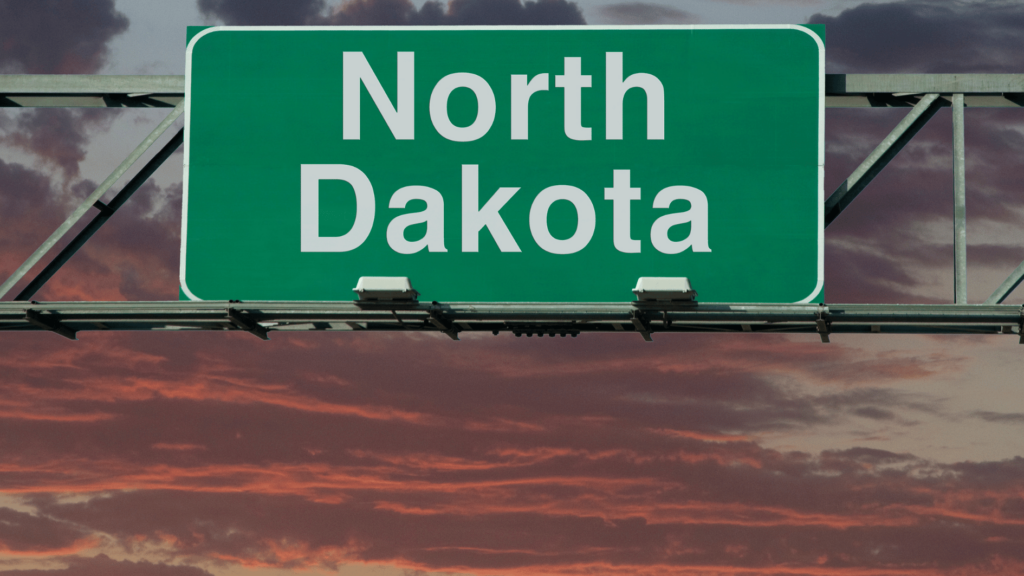
Net Metering
Net metering mandates that your utility tracks both the energy produced by your solar power system and the energy you consume, ensuring you receive credit for any surplus.
In North Dakota, investor-owned utilities must offer net metering to all customers, although electric cooperatives and municipal utilities are exempt from this requirement. Customers of investor-owned utilities will receive compensation for any excess energy at the utility’s avoided-cost rate. Systems up to 100 kW in size are eligible for net metering.
Property Tax Exemption
In North Dakota, you can save significantly with a 100% exemption from property tax increases for five years, even though installing a solar power system can add roughly 20 times your annual electricity bill savings to your property value.
Solar for All
- The Community Power Coalition (CPC)’s SFA program, “Powering America Together,” will collaborate with and enhance the impact of the US Department of Energy’s National Community Solar Partnership and Community Power Accelerator program. Led by Inclusive Prosperity Capital, Inc., CPC comprises seasoned community solar experts who have contributed to the Community Power Accelerator as developers, lenders, trainers, and technical assistance providers. The program aims to support the development of low-income community solar projects, reduce carbon emissions, lower energy costs, and promote quality jobs, community wealth-building, energy resilience, and equitable workforce development.
- The North Dakota Solar for All (SFA) initiative aims to mitigate greenhouse gas and other air pollutants by promoting the widespread adoption of solar technologies throughout the state. This effort involves providing solar arrays to single-family homes and facilitating the development of solar units for multi-family dwellings through grants, tax incentives, and low-interest lending programs.
- The Northern Plains Tribal Solar for All (NPT-SFA) program aims to revolutionize energy and economic systems within disadvantaged communities through substantial and concentrated investments. Initially focusing on North Dakota, South Dakota, and Montana, with later expansion to include tribes in Wisconsin and Wyoming, NPT-SFA draws inspiration from a successful pilot program conducted on the Northern Cheyenne reservation in Montana. Central to its strategy is the establishment of Tribally-owned and managed portfolios of solar systems installed at the homes of Tribal members. By capitalizing on factors such as high electricity prices, frequent power outages, and inefficient housing stock, NPT-SFA aims to implement impactful initiatives.
- Teaming up with lead applicant GRID Alternatives, a coalition of ten mission-driven nonprofit solar and affordable housing providers and allies has collaborated to develop the Solar Access for Nationwide Affordable Housing Program (SANAH). SANAH is meticulously crafted to maximize benefits for households and communities while advancing equity, reducing harmful pollution, and combating climate change. The program offers a multitude of advantages, including expanded access to solar and storage for income-qualified households, significant energy savings and relief from burdensome costs, as well as additional benefits like efficiency improvements and electrification.
Ohio

Net Metering
Net Energy Metering (NEM) is a billing practice that credits owners of solar PV systems for the excess electricity their systems generate and feed back into the grid.
When solar panels produce more energy than a home consumes, the surplus energy is returned to the public grid, contributing to the supply of clean energy for others. System owners earn credits for this extra power, which can be used to offset future electricity bills if sufficient credits are accumulated.
Solar Renewable Energy Credits (SRECs)
SRECs (Solar Renewable Energy Credits) provide additional income from solar electricity generation. Homeowners earn one SREC for every megawatt-hour (MWh, or 1,000 kWh) of electricity their solar panel system produces. These credits can be sold for cash in the SREC market.
Qualified Energy Project Tax Exemption
Solar energy projects meeting specific criteria can benefit from a Solar Sales Tax Exemption in Ohio, where the average sales tax is 5.7%. This exemption applies to tangible personal property associated with certified “qualified energy projects” utilizing solar panels to generate electricity.
To qualify, projects must adhere to various conditions, such as timely application submissions, construction timelines, and obtaining necessary approvals. Once certified, the tangible personal and commercial property of these projects is exempt from taxation for specified tax years.
Solar for All
- The Community Power Coalition (CPC)’s SFA program, “Powering America Together,” will collaborate with and enhance the impact of the US Department of Energy’s National Community Solar Partnership and Community Power Accelerator program. Led by Inclusive Prosperity Capital, Inc., CPC comprises seasoned community solar experts who have contributed to the Community Power Accelerator as developers, lenders, trainers, and technical assistance providers. The program aims to support the development of low-income community solar projects, reduce carbon emissions, lower energy costs, and promote quality jobs, community wealth-building, energy resilience, and equitable workforce development.
- The Ohio Solar for All (SFA) Program will strategically deploy solar-related upgrades using a variety of funding models administered by the Ohio Air Quality Development Authority and the Ohio Environmental Protection Agency. This initiative aims to provide opportunities for Ohio’s residential customers in low- to moderate-income households and disadvantaged communities, resulting in significant energy savings, alleviation of high energy burdens, and improvements in air quality and economic prosperity in historically underserved areas of Ohio. The program’s financial models will offer flexibility for Ohio families to access solar, regardless of whether they own or rent their homes, and can be utilized to attract private capital as part of its sustainable design and implementation. The state’s objectives include maximizing the reach of clean energy generation to underserved households, achieving maximum cost savings, and ensuring the longevity and sustainability of the SFA program for years to come.
- Based in Ohio, the Industrial Heartland Solar Coalition brings together 31 communities across eight states, spanning from the Midwest to the rustbelt. Led by Growth Opportunity Partners (Growth Opps), the coalition is committed to propelling a just and clean energy transition in America’s industrial heartland communities. Its Solar for All (SFA) program, centrally managed by Growth Opps, is locally guided and implemented by 18 coalition members. Through our SFA initiative, the coalition aims to deliver energy savings to households, reduce greenhouse gas emissions, and provide training through solar workforce development programs. By leveraging tax credits and SFA grant funds, our coalition seeks to reach low- and moderate-income households, installing residential rooftop solar and more.
- Teaming up with lead applicant GRID Alternatives, a coalition of ten mission-driven nonprofit solar and affordable housing providers and allies has collaborated to develop the Solar Access for Nationwide Affordable Housing Program (SANAH). SANAH is meticulously crafted to maximize benefits for households and communities while advancing equity, reducing harmful pollution, and combating climate change. The program offers a multitude of advantages, including expanded access to solar and storage for income-qualified households, significant energy savings and relief from burdensome costs, as well as additional benefits like efficiency improvements and electrification.
Oklahoma

Net Metering
Certain Oklahoma residents can take advantage of net metering, a program that channels surplus energy generated by your solar panels back into the grid. In return, you receive credits for this excess energy on your energy bills.
Presently, the Oklahoma Corporation Commission mandates all investor-owned utilities, such as Liberty Utilities, Public Service Company of Oklahoma, and Oklahoma Gas & Electric, to offer net energy metering. However, some individuals may incur a fee to enroll in the net metering program. Moreover, the state does not factor in the full retail price of the energy your home generates, resulting in net metering offering comparatively fewer savings compared to many other states.
Solar for All
- The Community Power Coalition (CPC)’s SFA program, “Powering America Together,” will collaborate with and enhance the impact of the US Department of Energy’s National Community Solar Partnership and Community Power Accelerator program. Led by Inclusive Prosperity Capital, Inc., CPC comprises seasoned community solar experts who have contributed to the Community Power Accelerator as developers, lenders, trainers, and technical assistance providers. The program aims to support the development of low-income community solar projects, reduce carbon emissions, lower energy costs, and promote quality jobs, community wealth-building, energy resilience, and equitable workforce development.
- The Clean Energy Fund of Texas (TxCEF), in collaboration with the Bullard Center for Environmental and Climate Justice at Texas Southern University (BCECJ), collectively known as CEFBC, is dedicated to deploying technical assistance, private capital, and grants to minority-serving institutions. Together, these organizations aim to facilitate the establishment of residential-serving community solar projects in low-income and disadvantaged communities that face significant challenges related to energy policy and grid vulnerability. These projects are anticipated to result in emissions reductions, savings on household utility bills, generation of shared revenues through community ownership, and the mobilization of private capital.
Oregon
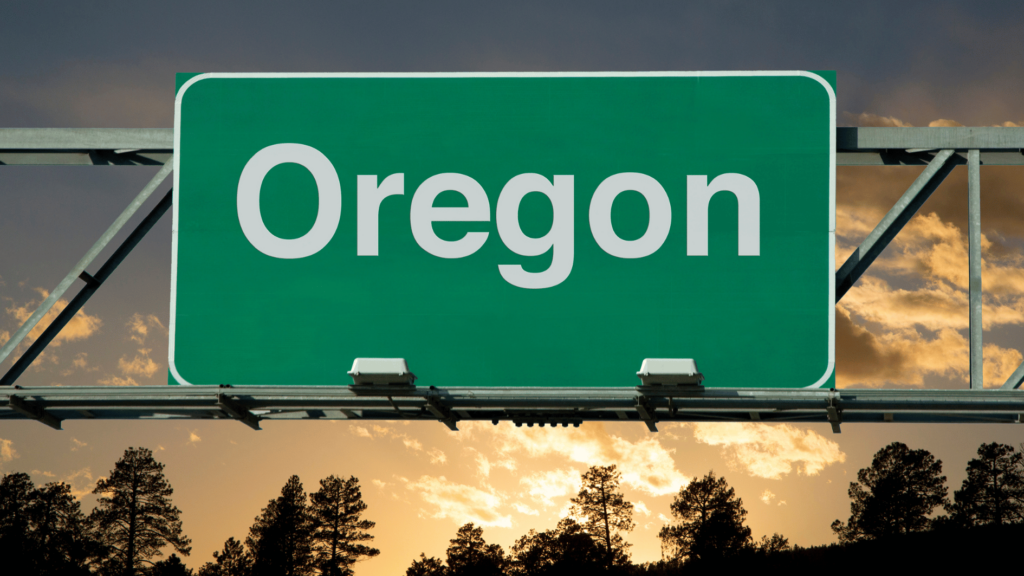
Solar Planning Program
Energy Trust of Oregon provides cash incentives and technical assistance to facilitate the seamless and cost-effective integration of solar into building designs. Leveraging solar power offers numerous advantages, including decreased energy expenses, diminished carbon emissions, and insulation against escalating electricity prices—compelling reasons to harness the sun’s energy. With Energy Trust’s support, transitioning to solar becomes accessible and affordable. Additionally, Energy Trust assists in designing buildings to be solar-ready, thereby reducing the expenses associated with future solar installations.
Net Metering
In Oregon, utilities are mandated by law to provide net metering, allowing solar panel owners to receive credits for surplus electricity they generate and send back to the grid. These credits can be used to offset the utility’s electricity when solar panels are not producing enough energy.
One of the primary benefits of this policy is that solar energy system owners can accumulate credits during sunny months and utilize them during periods of lower solar generation, such as Oregon’s cloudy winter months.
Furthermore, if solar energy system owners produce more electricity than they consume in a month, they will not incur any kilowatt-hour charges on their electric bill. They will only be responsible for paying basic utility service charges, which are typically modest.
It’s worth noting that the specifics and regulations of net metering programs may vary among different utility companies in Oregon.
Solar for All
- The Community Power Coalition (CPC)’s SFA program, “Powering America Together,” will collaborate with and enhance the impact of the US Department of Energy’s National Community Solar Partnership and Community Power Accelerator program. Led by Inclusive Prosperity Capital, Inc., CPC comprises seasoned community solar experts who have contributed to the Community Power Accelerator as developers, lenders, trainers, and technical assistance providers. The program aims to support the development of low-income community solar projects, reduce carbon emissions, lower energy costs, and promote quality jobs, community wealth-building, energy resilience, and equitable workforce development.
- Teaming up with lead applicant GRID Alternatives, a coalition of ten mission-driven nonprofit solar and affordable housing providers and allies has collaborated to develop the Solar Access for Nationwide Affordable Housing Program (SANAH). SANAH is meticulously crafted to maximize benefits for households and communities while advancing equity, reducing harmful pollution, and combating climate change. The program offers a multitude of advantages, including expanded access to solar and storage for income-qualified households, significant energy savings and relief from burdensome costs, as well as additional benefits like efficiency improvements and electrification.
- The Oregon SFA Coalition (OSFAC) is poised to harness existing solar incentives and support mechanisms through a coordinated program delivery framework tailored to the unique requirements of low-income households and disadvantaged communities in Oregon. Collaboratively, OSFAC members will facilitate solar installations at single-family residences with minimal to no upfront costs for customers, while offering point-of-sale rebates for multifamily buildings that directly benefit low-income occupants. Moreover, the program will extend financial and technical aid to advance Community Solar projects in Consumer Owned Utility Territories (COUTCS) beyond OCSP coverage areas, alongside initiatives for workforce development. This diversified strategy aims to optimize the utilization of current resources and enhance outreach to a wide array of households statewide.
Pennsylvania

Solarize Philly
The Solarize Philly program is a citywide initiative designed to simplify and reduce the cost of solar installation for Philadelphia residents. When homeowners sign up for Solarize Philly, they receive a complimentary solar project proposal. These proposals are customized based on the homeowner’s electricity usage and available roof space, ensuring optimal energy savings.
The Philadelphia Energy Authority (PEA) has negotiated discounted rates with solar installers and equipment suppliers to offer competitive pricing. The program ensures that the selected installers are reputable, contracts are standardized with consumer protections, and the equipment meets high-quality standards with appropriate warranties.
Additionally, Solarize Philly includes the Solar Savings Grant Program, which helps low- and moderate-income households participate. PEA provides a grant to cover part of the project cost, enabling participants to finance the remaining amount and start saving in the first year.
Net Metering
Net metering is a key incentive for solar energy adopters in Pennsylvania. This program allows residential and commercial customers with eligible alternative energy resources up to 3,000 kW to receive credits for surplus energy they produce and feed back into the grid.
With net metering, customers are billed based on their net energy usage each billing period. This is calculated by subtracting the excess energy sent back to the grid from the total energy delivered to them. If customers generate more energy than they consume, they can accumulate credits on their electricity bills.
To participate in net metering, residential solar energy systems must not exceed a capacity of 50 kW, while non-residential systems are limited to 3,000 kW. The energy generated should not surpass 110% of the customer’s anticipated annual electricity consumption, except when the system is leased. If the customer owns the solar energy system, only the size limits apply: 50 kW for residential and 3,000 kW for non-residential customers.
Solar for All
- The Community Power Coalition (CPC)’s SFA program, “Powering America Together,” will collaborate with and enhance the impact of the US Department of Energy’s National Community Solar Partnership and Community Power Accelerator program. Led by Inclusive Prosperity Capital, Inc., CPC comprises seasoned community solar experts who have contributed to the Community Power Accelerator as developers, lenders, trainers, and technical assistance providers. The program aims to support the development of low-income community solar projects, reduce carbon emissions, lower energy costs, and promote quality jobs, community wealth-building, energy resilience, and equitable workforce development.
- The Pennsylvania Solar for All (SFA) Program will facilitate the deployment of residential solar, storage, and associated upgrades in low-income and disadvantaged communities throughout Pennsylvania. The program aims to provide substantial benefits, including household savings, quality jobs, and community ownership, to rural, urban, and suburban areas, as well as energy communities and persistent poverty counties. By offering a strategic mix of financial subsidies, thoughtful program design, and project deployment services—such as community outreach and workforce development—the initiative will also strengthen the overall market for residential solar.
- Based in Ohio, the Industrial Heartland Solar Coalition brings together 31 communities across eight states, spanning from the Midwest to the rustbelt. Led by Growth Opportunity Partners (Growth Opps), the coalition is committed to propelling a just and clean energy transition in America’s industrial heartland communities. Its Solar for All (SFA) program, centrally managed by Growth Opps, is locally guided and implemented by 18 coalition members. Through our SFA initiative, the coalition aims to deliver energy savings to households, reduce greenhouse gas emissions, and provide training through solar workforce development programs. By leveraging tax credits and SFA grant funds, the coalition seeks to reach low- and moderate-income households, installing residential rooftop solar and more.
- The Clean Energy Fund of Texas (TxCEF), in collaboration with the Bullard Center for Environmental and Climate Justice at Texas Southern University (BCECJ), collectively known as CEFBC, is dedicated to deploying technical assistance, private capital, and grants to minority-serving institutions. Together, these organizations aim to facilitate the establishment of residential-serving community solar projects in low-income and disadvantaged communities that face significant challenges related to energy policy and grid vulnerability. These projects are anticipated to result in emissions reductions, savings on household utility bills, generation of shared revenues through community ownership, and the mobilization of private capital.
- Teaming up with lead applicant GRID Alternatives, a coalition of ten mission-driven nonprofit solar and affordable housing providers and allies has collaborated to develop the Solar Access for Nationwide Affordable Housing Program (SANAH). SANAH is meticulously crafted to maximize benefits for households and communities while advancing equity, reducing harmful pollution, and combating climate change. The program offers a multitude of advantages, including expanded access to solar and storage for income-qualified households, significant energy savings and relief from burdensome costs, as well as additional benefits like efficiency improvements and electrification.
Rhode Island

Net Metering
Rhode Islanders transitioning to solar power have the opportunity to engage in a net metering program. Homeowners in Rhode Island who produce power via solar panels are eligible to receive bill credits for all the power they generate, up to 125% of their on-site consumption during any billing period. This has the potential to substantially reduce or even eliminate their electric bills.
Renewable Energy Growth (REG) Program
In Rhode Island, alongside the net metering program, there exists an alternative option called the Renewable Energy Growth (REG) program, administered by Rhode Island Energy. However, participants must choose one program and cannot simultaneously opt for both. By selecting the REG program, homeowners commit to a 15 or 20-year contract, wherein they sell their energy output to Rhode Island Energy. Compensation can either be received through bill credits or direct deposit for surplus generation.
Solar for All
- The Rhode Island coalition of applicants intends to utilize this funding to introduce and enhance a comprehensive set of seven financial assistance programs and twelve technical assistance initiatives for project deployment. These initiatives are strategically crafted to tackle barriers to solar adoption in Rhode Island’s low-income and disadvantaged communities in a fair manner. Each financial assistance program is custom-tailored to alleviate specific and longstanding financial obstacles to solar adoption while catering to the needs of low-income renters and homeowners. The proposed financial assistance programs aim to provide tangible benefits of dependable solar power directly to Rhode Island’s historically underserved communities, incorporating eligibility requirements tailored to low-income and disadvantaged communities.
- The Community Power Coalition (CPC)’s SFA program, “Powering America Together,” will collaborate with and enhance the impact of the US Department of Energy’s National Community Solar Partnership and Community Power Accelerator program. Led by Inclusive Prosperity Capital, Inc., CPC comprises seasoned community solar experts who have contributed to the Community Power Accelerator as developers, lenders, trainers, and technical assistance providers. The program aims to support the development of low-income community solar projects, reduce carbon emissions, lower energy costs, and promote quality jobs, community wealth-building, energy resilience, and equitable workforce development.
South Carolina
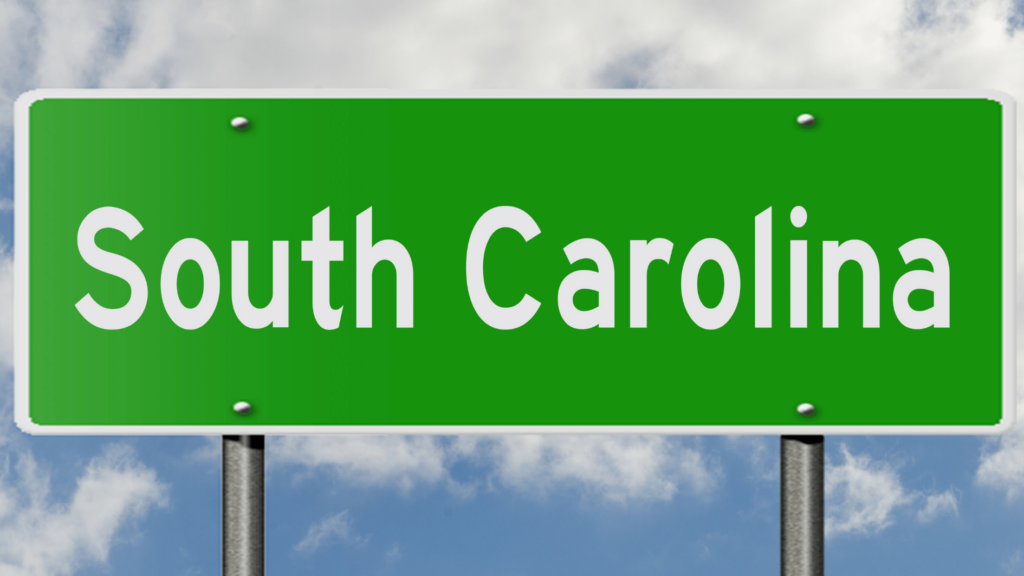
Net Metering
In South Carolina, residential and commercial solar panel users can benefit from net metering. This program enables individuals to generate electricity with their solar panels and send any excess power back to the grid. The surplus energy can be used later or sold to the utility company at a set rate. This setup encourages efficient solar energy use and offers financial incentives for adopting renewable energy systems.
Santee Cooper – Rooftop Solar Rebate Program
The Santee Cooper Rooftop Solar Rebate Program offers financial incentives for residential and commercial customers who install solar panels. Participants can receive a rebate based on the capacity of their solar energy system, which encourages the adoption of renewable energy by reducing upfront costs.
Solar for All
- The Community Power Coalition (CPC)’s SFA program, “Powering America Together,” will collaborate with and enhance the impact of the US Department of Energy’s National Community Solar Partnership and Community Power Accelerator program. Led by Inclusive Prosperity Capital, Inc., CPC comprises seasoned community solar experts who have contributed to the Community Power Accelerator as developers, lenders, trainers, and technical assistance providers. The program aims to support the development of low-income community solar projects, reduce carbon emissions, lower energy costs, and promote quality jobs, community wealth-building, energy resilience, and equitable workforce development.
- The Southeast Rural Power: SFA Coalition (SE Rural Power Coalition), led by Groundswell, will launch and implement the Southeast Rural Power: SFA Program (SE Rural Power SFA Program). This initiative aims to deliver residential-serving community solar, energy storage to enhance community resilience, direct solar savings, energy efficiency improvements, and greenhouse gas emissions reduction for low-income and disadvantaged households. The coalition comprises eligible subrecipient nonprofit electric cooperatives and municipal utilities serving some of the most impoverished and energy-burdened communities in the Southeast. The program’s implementation strategy focuses on strengthening and transforming the residential solar market in the region by supporting new developers and installers with entrepreneurship resources, comprehensive project development and O&M support services, project financing assistance, and workforce development programs, including pre-apprenticeships and apprenticeships.
- The South Carolina Office of Resilience (SCOR) is poised to amplify distributed solar generation and deliver tangible benefits to low-income and disadvantaged households and communities statewide. SCOR will inaugurate the Community Solar Initiative, a program geared towards providing residential-serving community solar to income-eligible residents, whether homeowners or renters, and collaborate with utilities to bolster existing utility-managed programs. Moreover, SCOR will coordinate with home energy efficiency and weatherization programs to synchronize efforts and engage low-income and disadvantaged households and communities effectively. Building upon the success of existing solar workforce training programs in South Carolina, SCOR will promote wider participation in these initiatives and facilitate the expansion of the solar workforce in the state. Lastly, SCOR will establish a Solar Innovation Fund to broaden solar opportunities, potentially including resilience hubs and solar and storage installations at affordable housing facilities.
- The Clean Energy Fund of Texas (TxCEF), in collaboration with the Bullard Center for Environmental and Climate Justice at Texas Southern University (BCECJ), collectively known as CEFBC, is dedicated to deploying technical assistance, private capital, and grants to minority-serving institutions. Together, these organizations aim to facilitate the establishment of residential-serving community solar projects in low-income and disadvantaged communities that face significant challenges related to energy policy and grid vulnerability. These projects are anticipated to result in emissions reductions, savings on household utility bills, generation of shared revenues through community ownership, and the mobilization of private capital.
SELF Solar System Loans
SELF (Solar Energy Loan Fund) offers unsecured personal loans for home improvement projects, including energy efficiency and renewable energy upgrades. Key features include:
- Loan Amounts: $3,000 to $25,000
- Interest Rates: 5% to 9.99% fixed
- Terms: 3 to 10 years
- Fees: Origination fee of 2.5%, with a 1.25% discount for military, plus a project management fee of 2.75-2.99%
- Eligibility: Open to homeowners in Florida, Alabama, Georgia, South Carolina, and Tennessee
South Dakota
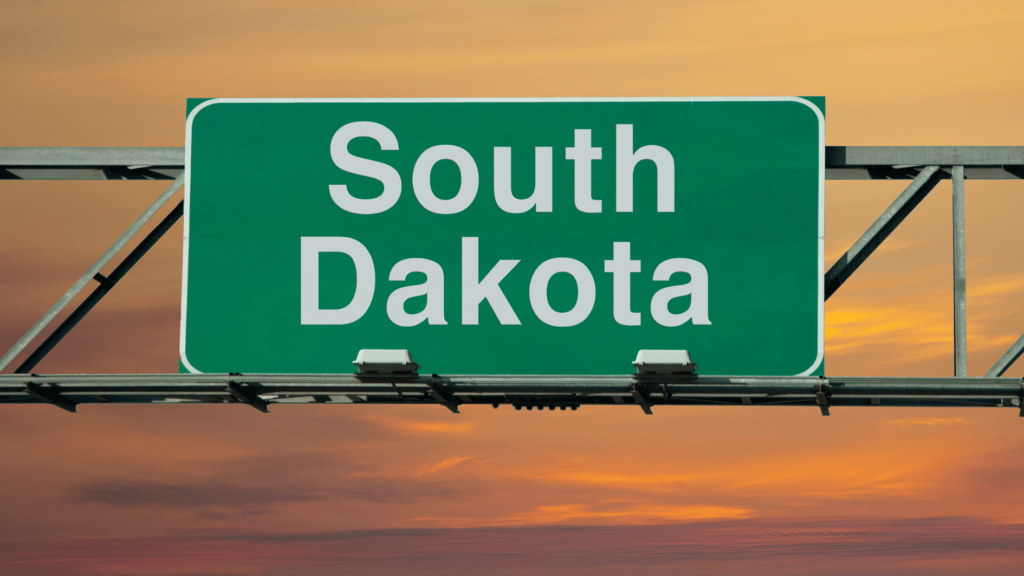
Solar for All
- The Community Power Coalition (CPC)’s SFA program, “Powering America Together,” will collaborate with and enhance the impact of the US Department of Energy’s National Community Solar Partnership and Community Power Accelerator program. Led by Inclusive Prosperity Capital, Inc., CPC comprises seasoned community solar experts who have contributed to the Community Power Accelerator as developers, lenders, trainers, and technical assistance providers. The program aims to support the development of low-income community solar projects, reduce carbon emissions, lower energy costs, and promote quality jobs, community wealth-building, energy resilience, and equitable workforce development.
- The South Dakota Solar for All (SFA) initiative aims to diminish greenhouse gas and other air pollutants by advancing the deployment of solar products throughout the state, primarily by providing solar arrays to single-family homes. The program will facilitate access to grants, tax incentives, and low-interest loans to foster the development of solar units for multi-family dwellings. Additionally, these funds will be utilized to mobilize financing and private capital by empowering community development financial institutions, credit unions, rural electric cooperatives, and municipal utilities to administer a revolving loan fund with minimal risk. The program’s impact will be quantifiable and can serve as a catalyst for attracting additional funding to the region. Importantly, in line with the Justice 40 initiative, these programs will be specifically tailored to benefit communities designated as low-income and disadvantaged.
- The Northern Plains Tribal Solar for All (NPT-SFA) program aims to revolutionize energy and economic systems within disadvantaged communities through substantial and concentrated investments. Initially focusing on North Dakota, South Dakota, and Montana, with later expansion to include tribes in Wisconsin and Wyoming, NPT-SFA draws inspiration from a successful pilot program conducted on the Northern Cheyenne reservation in Montana. Central to its strategy is the establishment of Tribally-owned and managed portfolios of solar systems installed at the homes of Tribal members. By capitalizing on factors such as high electricity prices, frequent power outages, and inefficient housing stock, NPT-SFA aims to implement impactful initiatives. Furthermore, innovative apprenticeship programs, educational initiatives, and training partnerships will be developed to attract industry leaders, thereby enhancing regional capacity to provide sustained benefits that extend well beyond the grant period.
- Teaming up with lead applicant GRID Alternatives, a coalition of ten mission-driven nonprofit solar and affordable housing providers and allies has collaborated to develop the Solar Access for Nationwide Affordable Housing Program (SANAH). SANAH is meticulously crafted to maximize benefits for households and communities while advancing equity, reducing harmful pollution, and combating climate change. The program offers a multitude of advantages, including expanded access to solar and storage for income-qualified households, significant energy savings and relief from burdensome costs, as well as additional benefits like efficiency improvements and electrification.
Tennessee

Solar for All
- The Community Power Coalition (CPC)’s SFA program, “Powering America Together,” will collaborate with and enhance the impact of the US Department of Energy’s National Community Solar Partnership and Community Power Accelerator program. Led by Inclusive Prosperity Capital, Inc., CPC comprises seasoned community solar experts who have contributed to the Community Power Accelerator as developers, lenders, trainers, and technical assistance providers. The program aims to support the development of low-income community solar projects, reduce carbon emissions, lower energy costs, and promote quality jobs, community wealth-building, energy resilience, and equitable workforce development.
- Tennessee’s Solar for All (SFA) Program aims to expedite the deployment of solar infrastructure to support low-income households and disadvantaged communities while embracing the state’s diverse urban, suburban, and rural landscapes. Covering the entire state, the program will offer financial assistance for residential rooftop and community solar infrastructure, storage, and related upgrades, aligning with existing complementary initiatives. Additionally, it will provide technical assistance for project deployment, focusing on workforce development opportunities, as well as assistance with siting, permitting, and interconnection as required. Administrative support will ensure projects are executed effectively, efficiently, and promptly.
- The Clean Energy Fund of Texas (TxCEF), in collaboration with the Bullard Center for Environmental and Climate Justice at Texas Southern University (BCECJ), collectively known as CEFBC, is dedicated to deploying technical assistance, private capital, and grants to minority-serving institutions. Together, these organizations aim to facilitate the establishment of residential-serving community solar projects in low-income and disadvantaged communities that face significant challenges related to energy policy and grid vulnerability. These projects are anticipated to result in emissions reductions, savings on household utility bills, generation of shared revenues through community ownership, and the mobilization of private capital.
Texas

American Electric Power SMART Source Solar PV Program
The SMART Source Solar PV Program assists AEP Texas customers in meeting their energy needs with solar power. This program provides financial incentives to reduce the upfront costs of installing solar electric systems. By installing solar panels at your home or business, you can generate your own electricity and contribute to environmental sustainability.
Texas Property Tax Exemption for Solar Panels
While Texas doesn’t impose state income taxes, its property taxes, determined by local taxing authorities rather than the state, rank among the nation’s highest. Concerns may arise regarding the impact of installing solar panels in the Lone Star State on property tax bills, given that property taxes hinge on property value.
Solar for All
- The Community Power Coalition (CPC)’s SFA program, “Powering America Together,” will collaborate with and enhance the impact of the US Department of Energy’s National Community Solar Partnership and Community Power Accelerator program. Led by Inclusive Prosperity Capital, Inc., CPC comprises seasoned community solar experts who have contributed to the Community Power Accelerator as developers, lenders, trainers, and technical assistance providers. The program aims to support the development of low-income community solar projects, reduce carbon emissions, lower energy costs, and promote quality jobs, community wealth-building, energy resilience, and equitable workforce development.
- The Texas Solar for All (SFA) Coalition represents a collaboration of Texas municipalities dedicated to serving the low-income and disadvantaged communities across Texas, totaling over 11 million people. The coalition’s primary objective is to revolutionize access to distributed solar energy in Texas, fostering new community wealth and savings through reductions in energy costs, equitable opportunities, and the creation of well-paying jobs in the clean energy sector. Leveraging federal funds, tax credits, and various other resources, the Texas SFA program aims to offer financial assistance and facilitate access to private capital to support the deployment of residential solar, battery storage, and energy efficiency measures in both multifamily and single-family dwellings, thereby enhancing community well-being and resilience against power system failures. Moreover, the program will provide support for workforce training tailored to serve low-income and disadvantaged residents, bolster minority- and women-owned businesses, and collaborate closely with community-based organizations. The Coalition’s SFA initiatives are designed not only to be expanded within the member jurisdictions but also to be scaled up to other regions of Texas both during and beyond the SFA grant period.
- The Clean Energy Fund of Texas (TxCEF), in collaboration with the Bullard Center for Environmental and Climate Justice at Texas Southern University (BCECJ), collectively known as CEFBC, is dedicated to deploying technical assistance, private capital, and grants to minority-serving institutions. Together, these organizations aim to facilitate the establishment of residential-serving community solar projects in low-income and disadvantaged communities that face significant challenges related to energy policy and grid vulnerability. These projects are anticipated to result in emissions reductions, savings on household utility bills, generation of shared revenues through community ownership, and the mobilization of private capital. By deploying solar and energy storage, these projects will not only deliver grid and community benefits but also power community resilience centers. These outcomes will extend the advantages of greenhouse gas and air pollution reduction initiatives to communities across the United States.
- Teaming up with lead applicant GRID Alternatives, a coalition of ten mission-driven nonprofit solar and affordable housing providers and allies has collaborated to develop the Solar Access for Nationwide Affordable Housing Program (SANAH). SANAH is meticulously crafted to maximize benefits for households and communities while advancing equity, reducing harmful pollution, and combating climate change. The program offers a multitude of advantages, including expanded access to solar and storage for income-qualified households, significant energy savings and relief from burdensome costs, as well as additional benefits like efficiency improvements and electrification.
Utah

Murray City Power – Net Metering Pilot Program
Murray City Power introduces net metering to customers through a pilot initiative, enabling those generating electricity from solar photovoltaic (PV), wind, or hydroelectric systems with a maximum capacity of 10 kilowatts (kW) to participate. The utility will install and maintain a revenue meter capable of tracking electricity flow in both directions at the customer’s site. This program is presently accessible to customers as a trial. The Murray Municipal Council reserves the right to modify or terminate the program at any time, without obligation to existing participants.
Solar for All
- The Community Power Coalition (CPC)’s SFA program, “Powering America Together,” will collaborate with and enhance the impact of the US Department of Energy’s National Community Solar Partnership and Community Power Accelerator program. Led by Inclusive Prosperity Capital, Inc., CPC comprises seasoned community solar experts who have contributed to the Community Power Accelerator as developers, lenders, trainers, and technical assistance providers. The program aims to support the development of low-income community solar projects, reduce carbon emissions, lower energy costs, and promote quality jobs, community wealth-building, energy resilience, and equitable workforce development.
- In collaboration with a diverse coalition of regional stakeholders across sectors, Utah is set to launch a transformative initiative known as the Solar for All of Utah (S4AU). This comprehensive program aims to harness Utah’s abundant solar resources to bolster the deployment of residential solar and deliver tangible benefits to disadvantaged and low-income households across the state’s varied regions. S4AU will facilitate rooftop solar adoption through inclusive financing options, robust community engagement efforts, workforce development initiatives, and innovative partnerships with proven track records in advancing renewable energy adoption throughout Utah’s communities. The S4AU initiative is intentionally crafted to modernize energy access for Utah’s low-income market as part of a broader statewide effort toward justice and equity in the transition to cleaner energy sources. Notably, Utah currently has populations without electricity or reliant on life-sustaining medical devices powered by electricity. In its initial stages, S4AU prioritizes Utahns who are vulnerable to electricity deprivation or unplanned power outages.
- Grid Alternatives’ Western Indigenous Network Solar For All (WIN-SFA) program draws on its extensive experience in working with Tribal communities, aiming to maximize benefits for Tribal households and advance energy sovereignty while addressing environmental degradation and climate change. Through the provision of financial assistance in the form of grants and incentives, coupled with technical support from organizations with expertise in equitable deployment of renewable energy in Tribal settings, WIN-SFA seeks to bring solar power to thousands of Native American households nationwide.
Vermont
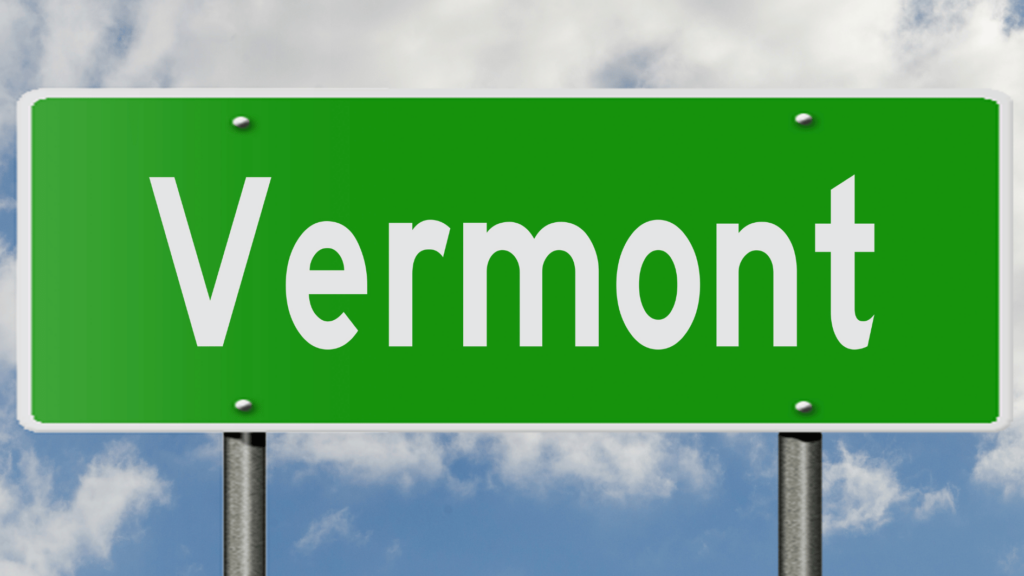
Net Metering
Since its inception in 1998, Vermont’s net metering legislation has undergone multiple expansions and revisions. Any Vermont electric customer is eligible for net metering upon registration and receipt of a Certificate of Public Good from the Vermont Public Utility Commission (PUC).
For certain systems like hydroelectric, ground-mounted PV systems up to 15 kW, roof-mounted PV systems, and mixed ground-/roof-mounted systems up to 500 kW (with the ground-mounted portion not exceeding 15 kW), a streamlined registration process outlined in PUC Rule 5.100 is followed. Upon completion of registration and compliance with utility interconnection requirements, a Certificate of Public Good is automatically considered issued 15 days after form submission, enabling the customer to proceed with installation.
Systems with capacities exceeding 15 kW but not surpassing 500 kW, including ground-mounted PV systems, and mixed ground- and roof-mounted systems with ground-mounted capacities exceeding 15 kW, undergo a more extensive application process for a Certificate of Public Good. This procedure also applies to net-metering systems employing eligible technologies other than PV and excludes hydroelectric or roof-mounted PV systems without ground-mounted components.
Renewable Energy Systems Sales Tax Exemption
Vermont’s sales tax exemption for renewable energy systems, introduced under the Miscellaneous Tax Reduction Act of 1999 (H.B. 0548), initially targeted net-metered systems exclusively. Over time, this exemption has broadened to encompass systems with capacities of up to 500 kilowatts (kW) utilizing eligible renewable energy resources as defined in 30 V.S.A. § 8002, micro-combined heat and power (CHP) systems up to 20 kW, and solar water-heating systems. The exemption applies to both grid-tied and off-grid systems. Vermont’s standard sales tax rate stands at 6%.
Local Option – Property Tax Exemption
Vermont municipalities have the discretion to grant exemptions from municipal real and personal property taxes for specific renewable energy systems (please note that state property taxes remain applicable). These eligible systems encompass a range, such as windmills, solar energy collection facilities, methane conversion facilities, net-metered systems, and their components, excluding the land hosting the facility. Adoption of this exemption varies across municipalities, but typically it covers the entire value of qualifying renewable energy systems and extends to residential, commercial, and industrial real and personal property.
It’s worth noting that solar photovoltaic systems under 50 kW, whether net-metered or off-grid and supplying power solely to their host properties, are already exempt from municipal property taxes according to 32 V.S.A. § 3802(17).
Solar for All
- SFA Vermont’s (SAV) goal is to reduce electricity costs for low-income and disadvantaged Vermonters by promoting solar array ownership. This initiative aims to maximize greenhouse gas emission reductions and advance solar market development. SAV will facilitate the installation of solar systems on the roofs of low-income homeowners, managed affordable apartment buildings, and as residential-serving community arrays. Additionally, it will promote the adoption of battery storage systems and electrical upgrades to further reduce greenhouse gas emissions. SAV plans to create long-term impact by establishing revolving loan funds and financing programs to leverage private capital and other greenhouse gas reduction initiatives in Vermont.
- The Community Power Coalition (CPC)’s SFA program, “Powering America Together,” will collaborate with and enhance the impact of the US Department of Energy’s National Community Solar Partnership and Community Power Accelerator program. Led by Inclusive Prosperity Capital, Inc., CPC comprises seasoned community solar experts who have contributed to the Community Power Accelerator as developers, lenders, trainers, and technical assistance providers. The program aims to support the development of low-income community solar projects, reduce carbon emissions, lower energy costs, and promote quality jobs, community wealth-building, energy resilience, and equitable workforce development.
Virginia
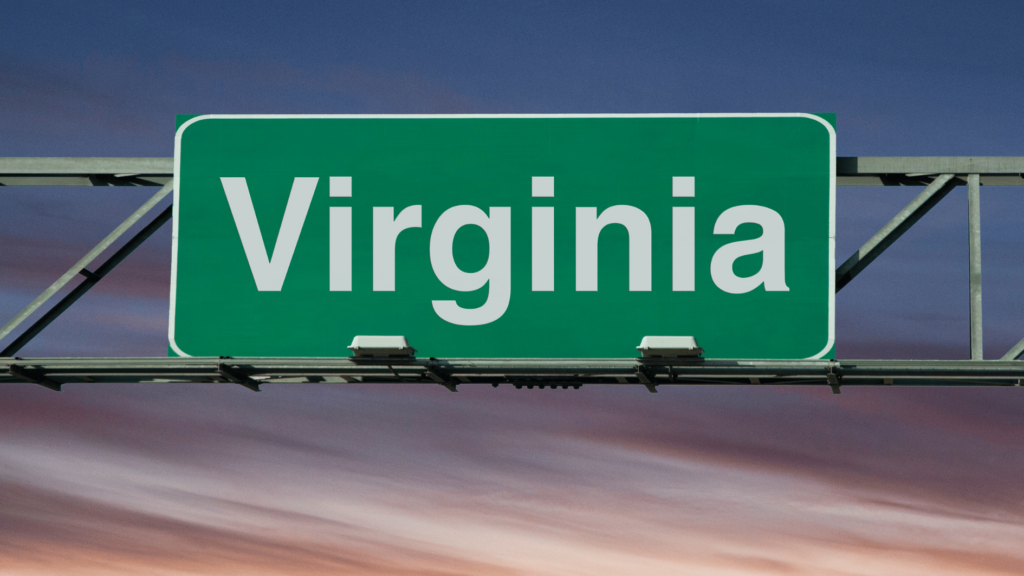
Real Property Tax Exemption
In Virginia, counties, cities, and towns have the authority to fully or partially exempt solar energy equipment and recycling equipment from local property taxes. This provision primarily targets non-commercial users, as commercial entities enjoy full exemption from state and local taxes under the Commercial Property Tax Exemption for Solar.
Net Metering
In Virginia, net metering operates on a first-come, first-served basis until the total generating capacity owned and operated by customer-generators equals 1% of an electric distribution company’s adjusted peak-load forecast for the previous year in Virginia. This opportunity extends to customers of investor-owned utilities, including competitive suppliers, and electric cooperatives. However, customers of municipal utilities are not eligible for net metering.
Shared Solar Program
The Shared Solar Program is an initiative designed to expand access to solar energy for customers who may not have the ability to install solar panels on their own properties. Shared solar, also known as community solar, allows multiple participants to share the benefits of a single solar energy system located off-site.
Through this program, individuals or entities can subscribe to a portion of the electricity generated by a shared solar facility. Participants typically receive credits on their electricity bills for the energy produced by their share of the system. This model enables renters, homeowners with shaded roofs, or those with financial constraints to access clean energy and potentially lower their electricity costs without needing to install solar panels on their own properties.
Solar for All
- The Community Power Coalition (CPC)’s SFA program, “Powering America Together,” will collaborate with and enhance the impact of the US Department of Energy’s National Community Solar Partnership and Community Power Accelerator program. Led by Inclusive Prosperity Capital, Inc., CPC comprises seasoned community solar experts who have contributed to the Community Power Accelerator as developers, lenders, trainers, and technical assistance providers. The program aims to support the development of low-income community solar projects, reduce carbon emissions, lower energy costs, and promote quality jobs, community wealth-building, energy resilience, and equitable workforce development.
- The Solar for All: Virginia Energy Program (SAVE) aims to promote energy savings and enhance resilience by expanding access to solar and solar-plus-storage funding for low-income and disadvantaged communities. SFA funds will be utilized to transform Virginia’s low-income solar market by leveraging private capital and fostering the formation and expansion of solar businesses. SAVE will tackle existing market barriers by reducing upfront costs, enabling broader access to leasing and power purchase agreements, increasing financing options for low-income homeowners, and removing interconnection obstacles. The program will offer various funding channels to incentivize direct ownership, third-party ownership, and subscriber-based solar energy programs.
- The Southeast Rural Power: SFA Coalition (SE Rural Power Coalition), led by Groundswell, will launch and implement the Southeast Rural Power: SFA Program (SE Rural Power SFA Program). This initiative aims to deliver residential-serving community solar, energy storage to enhance community resilience, direct solar savings, energy efficiency improvements, and greenhouse gas emissions reduction for low-income and disadvantaged households. The coalition comprises eligible subrecipient nonprofit electric cooperatives and municipal utilities serving some of the most impoverished and energy-burdened communities in the Southeast. The program’s implementation strategy focuses on strengthening and transforming the residential solar market in the region by supporting new developers and installers with entrepreneurship resources, comprehensive project development and O&M support services, project financing assistance, and workforce development programs, including pre-apprenticeships and apprenticeships. It also includes community outreach and education initiatives. Headquartered in DC, Groundswell will operate its SE Rural Power Coalition program across eight states in the American Southeast.
- The Clean Energy Fund of Texas (TxCEF), in collaboration with the Bullard Center for Environmental and Climate Justice at Texas Southern University (BCECJ), collectively known as CEFBC, is dedicated to deploying technical assistance, private capital, and grants to minority-serving institutions. Together, these organizations aim to facilitate the establishment of residential-serving community solar projects in low-income and disadvantaged communities that face significant challenges related to energy policy and grid vulnerability. These projects are anticipated to result in emissions reductions, savings on household utility bills, generation of shared revenues through community ownership, and the mobilization of private capital.
Washington

Solar Energy System Sales Tax Incentives
The Solar Energy System Sales Tax Incentives offer an exemption from sales tax on the procurement of machinery, equipment, and installation services associated with solar energy systems.
This exemption, effective until 2029, encompasses all sales tax incurred during the acquisition and installation of these systems, capable of generating up to 100 kilowatts (kW) AC of electricity. By leveraging this incentive, Washington property owners can potentially save over $2,000 on the total expenses associated with adopting solar energy.
Chelan County’s Sustainable Natural Alternative Power Program (SNAP)
For decades, Chelan County PUD has relied on clean, renewable, and cost-effective hydropower as its cornerstone. Now, emerging renewables such as solar, wind, and small hydro are complementing this established legacy.
Between 2003 and 2006, the Alcoa Community Foundation, McCandlish Electric of Wenatchee, and the International Brotherhood of Electrical Workers Local 191 collaborated to fund and install 36 solar arrays at schools and nonprofit organizations across Chelan County. The proceeds generated from electricity sales at these locations are reinvested into the schools and the wider community. For instance, at the Performing Arts Center in downtown Wenatchee, revenues from a 10-kilowatt solar installation can offset up to 20 percent of the building’s energy expenses.
Clark Public Utilities‘ Solar Energy Program
Clark Public Utilities’ Solar Energy Program is a comprehensive initiative aimed at promoting the adoption of solar energy among residential and commercial customers in their service area.
Net Energy Metering
In Washington State, net metering enables both residential and commercial customers producing their own electricity from solar power to distribute surplus electricity back into the grid.
This practice yields numerous advantages. It allows solar energy users to balance their energy generation and consumption, ensuring continuous access to electricity even when their solar panels are inactive, such as during nighttime or cloudy conditions. Furthermore, it presents financial benefits, as surplus power supplied to the grid can be credited against consumed electricity, effectively reducing energy bills.
The Washington Utilities and Transportation Commission (UTC) oversees the services and rates of privately owned utility and transportation companies. The UTC has established regulations governing net metering in Washington, which include mandating utilities to provide net metering programs to their customers.
Solar for All
- The Community Power Coalition (CPC)’s SFA program, “Powering America Together,” will collaborate with and enhance the impact of the US Department of Energy’s National Community Solar Partnership and Community Power Accelerator program. Led by Inclusive Prosperity Capital, Inc., CPC comprises seasoned community solar experts who have contributed to the Community Power Accelerator as developers, lenders, trainers, and technical assistance providers. The program aims to support the development of low-income community solar projects, reduce carbon emissions, lower energy costs, and promote quality jobs, community wealth-building, energy resilience, and equitable workforce development.
- Teaming up with lead applicant GRID Alternatives, a coalition of ten mission-driven nonprofit solar and affordable housing providers and allies has collaborated to develop the Solar Access for Nationwide Affordable Housing Program (SANAH). SANAH is meticulously crafted to maximize benefits for households and communities while advancing equity, reducing harmful pollution, and combating climate change. The program offers a multitude of advantages, including expanded access to solar and storage for income-qualified households, significant energy savings and relief from burdensome costs, as well as additional benefits like efficiency improvements and electrification.
- Washington is set to introduce a series of initiatives aimed at broadening solar accessibility for income-qualified residents and frontline communities statewide. These programs are designed to complement existing policies and initiatives promoting distributed solar adoption in the state. Among the proposed initiatives are programs tailored for single-family homeowners, initiatives facilitating access to state and federal solar incentives for multifamily affordable housing properties, and a program specifically geared towards Tribal solar deployment, developed in collaboration with Tribal governments. With a primary objective of ensuring equitable distribution of solar benefits to low-income households across Washington, these programs will particularly target environmental justice communities, aligning with Justice40 principles and Washington’s environmental justice commitments.
West Virginia
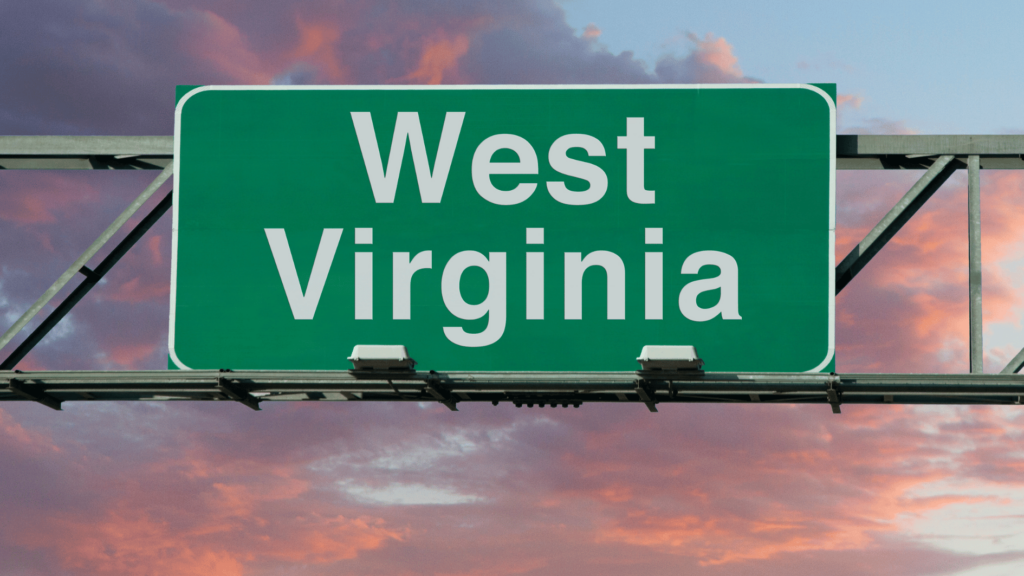
Net Metering
In compliance with the directive from the West Virginia Public Service Commission, utility companies are required to facilitate cost-saving opportunities for homeowners in West Virginia by providing credits at cost for surplus energy generated by residential solar panels. The procedure for enrolling in net metering can vary depending on the location, so it’s essential to verify the specific steps, although many installers are willing to assist customers with enrolling in net metering programs.
Solar for All
- The Community Power Coalition (CPC)’s SFA program, “Powering America Together,” will collaborate with and enhance the impact of the US Department of Energy’s National Community Solar Partnership and Community Power Accelerator program. Led by Inclusive Prosperity Capital, Inc., CPC comprises seasoned community solar experts who have contributed to the Community Power Accelerator as developers, lenders, trainers, and technical assistance providers. The program aims to support the development of low-income community solar projects, reduce carbon emissions, lower energy costs, and promote quality jobs, community wealth-building, energy resilience, and equitable workforce development.
- The West Virginia Office of Energy will utilize Solar for All (SFA) funding to deploy residential solar roofs, support home energy efficiency, reduce utility costs for low-income residents, and enhance the energy resilience of West Virginia households. The West Virginia REAL Energy Resilient Roofs Program (WVRRP) will serve low-income and disadvantaged residents across the state by providing residential solar, solar for college residences, and residential-serving community solar. Supported by over a dozen organizations, cities, and community stakeholders, WVRRP aims to deliver significant energy benefits and upgrades to disadvantaged households. The program will attract financing and private capital to create quality jobs, reduce energy burdens, lower greenhouse gas emissions, and save money on electricity bills for the most underserved homeowners in the state.
- Based in Ohio, the Industrial Heartland Solar Coalition brings together 31 communities across eight states, spanning from the Midwest to the rustbelt. Led by Growth Opportunity Partners (Growth Opps), the coalition is committed to propelling a just and clean energy transition in America’s industrial heartland communities. Its Solar for All (SFA) program, centrally managed by Growth Opps, is locally guided and implemented by 18 coalition members. Through our SFA initiative, the coalition aims to deliver energy savings to households, reduce greenhouse gas emissions, and provide training through solar workforce development programs. By leveraging tax credits and SFA grant funds, our coalition seeks to reach low- and moderate-income households, installing residential rooftop solar and more.
- The Clean Energy Fund of Texas (TxCEF), in collaboration with the Bullard Center for Environmental and Climate Justice at Texas Southern University (BCECJ), collectively known as CEFBC, is dedicated to deploying technical assistance, private capital, and grants to minority-serving institutions. Together, these organizations aim to facilitate the establishment of residential-serving community solar projects in low-income and disadvantaged communities that face significant challenges related to energy policy and grid vulnerability. These projects are anticipated to result in emissions reductions, savings on household utility bills, generation of shared revenues through community ownership, and the mobilization of private capital.
Wisconsin
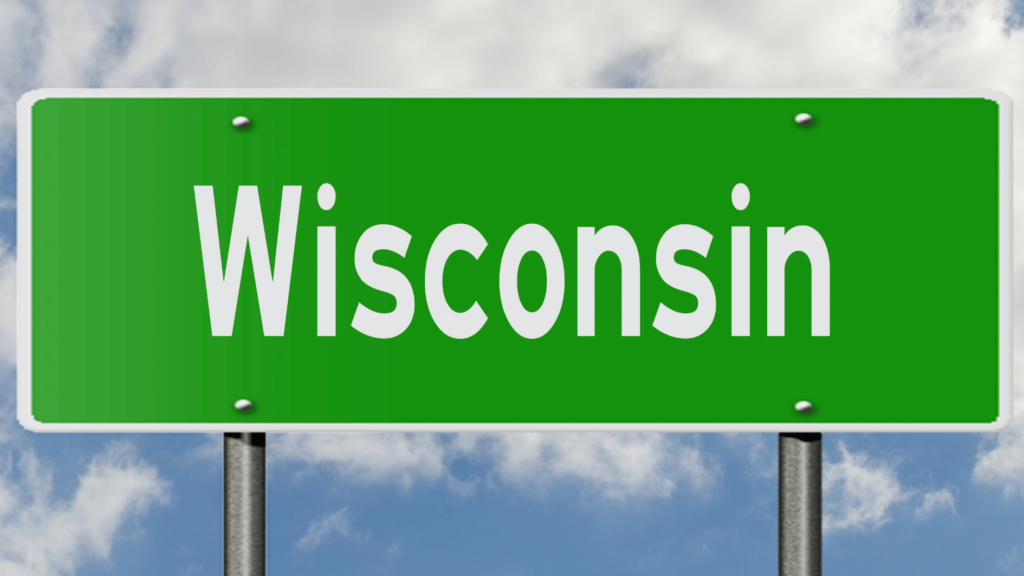
Net Metering
In Wisconsin, net metering (or net energy billing) is accessible to customers of both investor-owned utilities and municipal utilities seeking to install customer-owned electric generation below a specified size threshold. With net metering, customers are invoiced based on the variance between the energy they consume and the energy they generate within a billing cycle.
Focus on Energy Program
Wisconsin residents transitioning to solar energy are eligible for cash rebates through the Focus on Energy program. Homeowners in densely populated regions can receive rebates of up to $500, while those in remote areas may qualify for up to $1,000. It’s worth noting that not all utility companies in Wisconsin participate in this rebate program, so homeowners should verify eligibility with providers in their vicinity.
Solar for All
- The Community Power Coalition (CPC)’s SFA program, “Powering America Together,” will collaborate with and enhance the impact of the US Department of Energy’s National Community Solar Partnership and Community Power Accelerator program. Led by Inclusive Prosperity Capital, Inc., CPC comprises seasoned community solar experts who have contributed to the Community Power Accelerator as developers, lenders, trainers, and technical assistance providers. The program aims to support the development of low-income community solar projects, reduce carbon emissions, lower energy costs, and promote quality jobs, community wealth-building, energy resilience, and equitable workforce development.
- Using a blend of homeowner grants, incentives, tax credits, loan options, and collaborations, the Wisconsin Economic Development Corporation (WEDC) aims to eliminate obstacles to solar energy adoption across the state. Central to the program’s objectives is assisting disadvantaged communities in Wisconsin through the installation of solar panels on both single-family and multifamily residential properties. The Wisconsin Solar for All (SFA) initiative ensures that participants face minimal or no initial costs when engaging in solar programs, with the primary aim of reducing household energy expenses. Leveraging the expertise of the Wisconsin Technical College System and other workforce partners, who are already preparing individuals for careers in clean energy, especially solar installation, will be crucial to the program’s success.
- The Midwest Tribal Energy Resources Association, Inc. (MTERA), along with coalition partners GRID Alternatives (GRID), the Alliance for Tribal Clean Energy (ATCE), and the Native CDFI Network (NCN), will implement Tribally-owned residential solar projects, including storage and essential upgrades, benefiting the 35 Tribes located in Michigan, Minnesota, and Wisconsin. Based in Wisconsin, the coalition will capitalize on the extensive expertise and experience of its members to develop a program that empowers Tribes and tribal energy advocates. It will offer technical assistance for project deployment to aid in planning and constructing residential solar projects on Tribal Lands in the Midwest, while also focusing on workforce development to bolster Tribal self-determination and self-sufficiency.
- Teaming up with lead applicant GRID Alternatives, a coalition of ten mission-driven nonprofit solar and affordable housing providers and allies has collaborated to develop the Solar Access for Nationwide Affordable Housing Program (SANAH). SANAH is meticulously crafted to maximize benefits for households and communities while advancing equity, reducing harmful pollution, and combating climate change. The program offers a multitude of advantages, including expanded access to solar and storage for income-qualified households, significant energy savings and relief from burdensome costs, as well as additional benefits like efficiency improvements and electrification.
Wyoming

Net Metering
Also known as net energy metering, net metering is an excellent way to recoup the investment in solar panels. By connecting to the electrical grid, you can sell excess energy back to your local utility company or energy provider, helping to offset the cost of your solar panel system.
Traditional meters measure electricity only as it flows from the utility company to your home. In contrast, net metering employs an electric meter that tracks electrical flow both into and out of your home. When your solar panels produce more energy than you consume, the surplus electricity is sent to the grid for use by other residents. Conversely, if your energy consumption exceeds the production from your solar panels, you draw the necessary power from the grid.
Solar for All
- The Wyoming Solar for All (SFA) Program is poised to extend economic and environmental advantages of solar energy to low-income, Tribal, and disadvantaged communities statewide. This endeavor will employ a community-driven approach to tackle both market and non-market barriers to residential solar adoption, utilizing outreach, workforce development, and technical and financial assistance. By leveraging and mobilizing additional capital, the program aims to maximize the number of households benefiting from single-family and multifamily residential solar projects. It promises substantial reductions in electricity bills alongside other valuable outcomes, including enhanced resilience, decreased greenhouse gas emissions, and the cultivation of a more inclusive and skilled workforce.
- The Northern Plains Tribal Solar for All (NPT-SFA) program aims to revolutionize energy and economic systems within disadvantaged communities through substantial and concentrated investments. Initially focusing on North Dakota, South Dakota, and Montana, with later expansion to include tribes in Wisconsin and Wyoming, NPT-SFA draws inspiration from a successful pilot program conducted on the Northern Cheyenne reservation in Montana. Central to its strategy is the establishment of Tribally-owned and managed portfolios of solar systems installed at the homes of Tribal members. By capitalizing on factors such as high electricity prices, frequent power outages, and inefficient housing stock, NPT-SFA aims to implement impactful initiatives. Furthermore, innovative apprenticeship programs, educational initiatives, and training partnerships will be developed to attract industry leaders, thereby enhancing regional capacity to provide sustained benefits that extend well beyond the grant period.
Washington DC

Solar for All
- The Community Power Coalition (CPC)’s SFA program, “Powering America Together,” will collaborate with and enhance the impact of the US Department of Energy’s National Community Solar Partnership and Community Power Accelerator program. Led by Inclusive Prosperity Capital, Inc., CPC comprises seasoned community solar experts who have contributed to the Community Power Accelerator as developers, lenders, trainers, and technical assistance providers. The program aims to support the development of low-income community solar projects, reduce carbon emissions, lower energy costs, and promote quality jobs, community wealth-building, energy resilience, and equitable workforce development.
- The DC Solar for All (SFA) Program will leverage financing and private capital to boost the deployment of residential solar, storage, and related upgrades, benefiting low-income residents. The Greenhouse Gas Reduction Fund (GGRF) funds received by the Department of Energy and Environment (DOEE) will directly aid low-income and disadvantaged District residents by providing household savings, quality jobs, increased resiliency to power outages, and community ownership. The program will deliver enabling upgrades such as energy efficiency retrofits, roof repairs, and electrical upgrades, which will unlock greater solar potential for low-income homeowners, reduce energy burdens for low-income homeowners and renters, increase resiliency, maximize solar potential, and create opportunities for training and employment in the renewable energy and building trades industries.
- The Clean Energy Fund of Texas (TxCEF), in collaboration with the Bullard Center for Environmental and Climate Justice at Texas Southern University (BCECJ), collectively known as CEFBC, is dedicated to deploying technical assistance, private capital, and grants to minority-serving institutions. Together, these organizations aim to facilitate the establishment of residential-serving community solar projects in low-income and disadvantaged communities that face significant challenges related to energy policy and grid vulnerability. These projects are anticipated to result in emissions reductions, savings on household utility bills, generation of shared revenues through community ownership, and the mobilization of private capital.
Disclaimer: The information provided in this article is accurate as of the date of publication. SolarWiki serves as an informative resource and does not claim to be an expert in the financial sphere. For detailed and personalized information, please contact official government sources or consult with professional solar installers.





